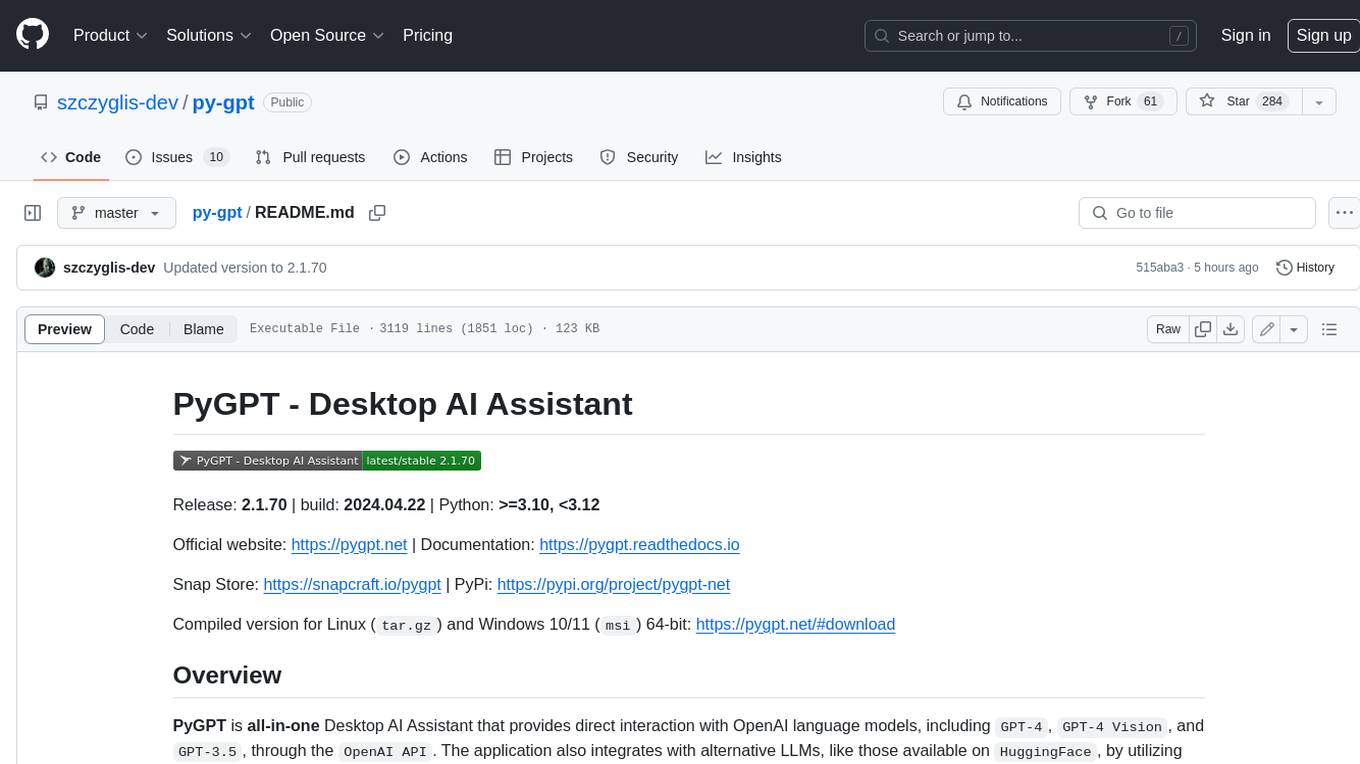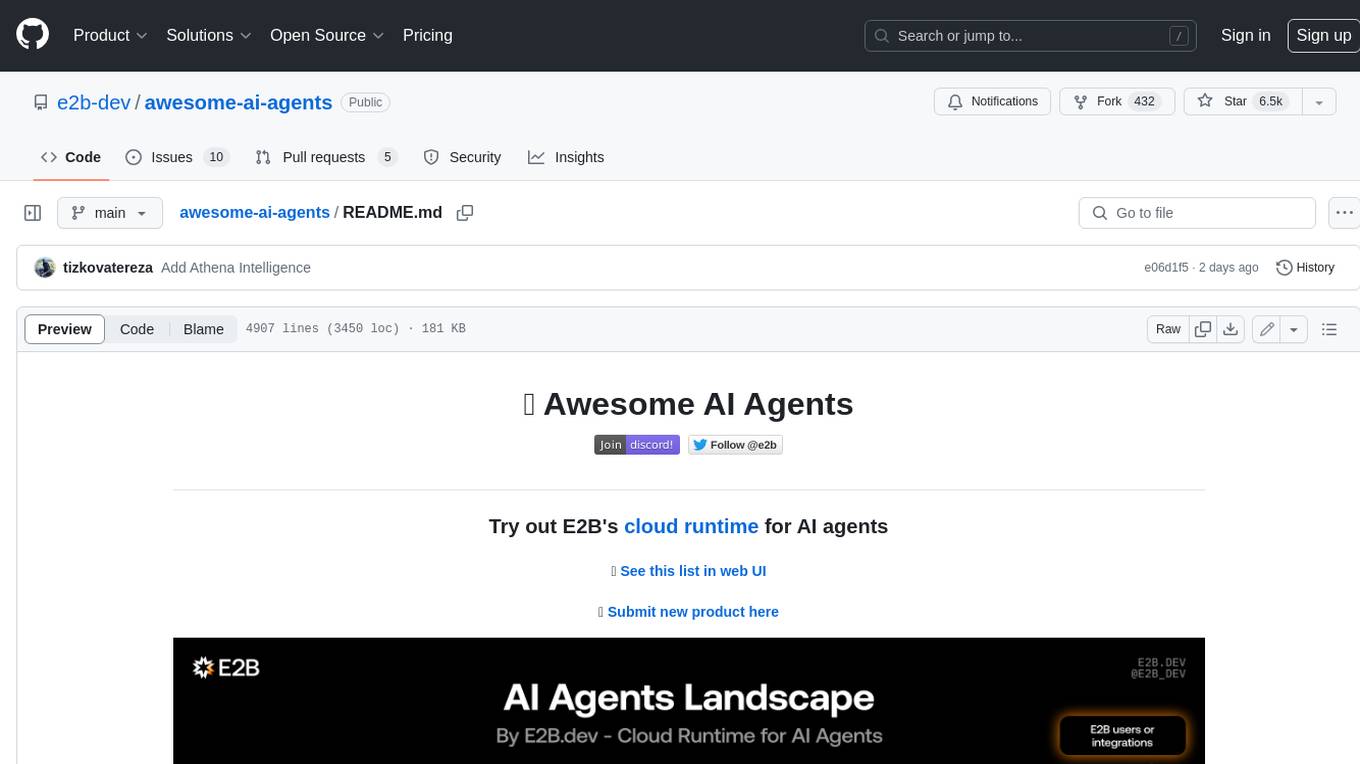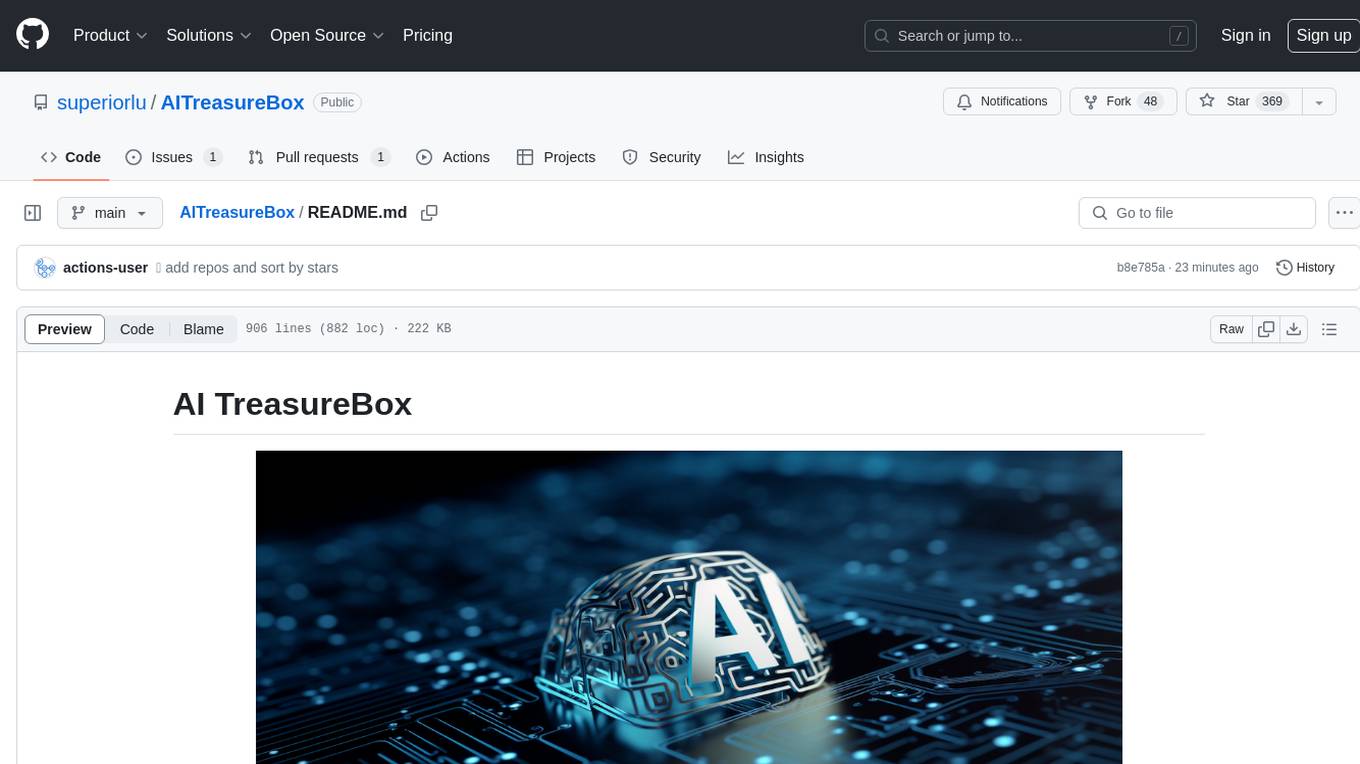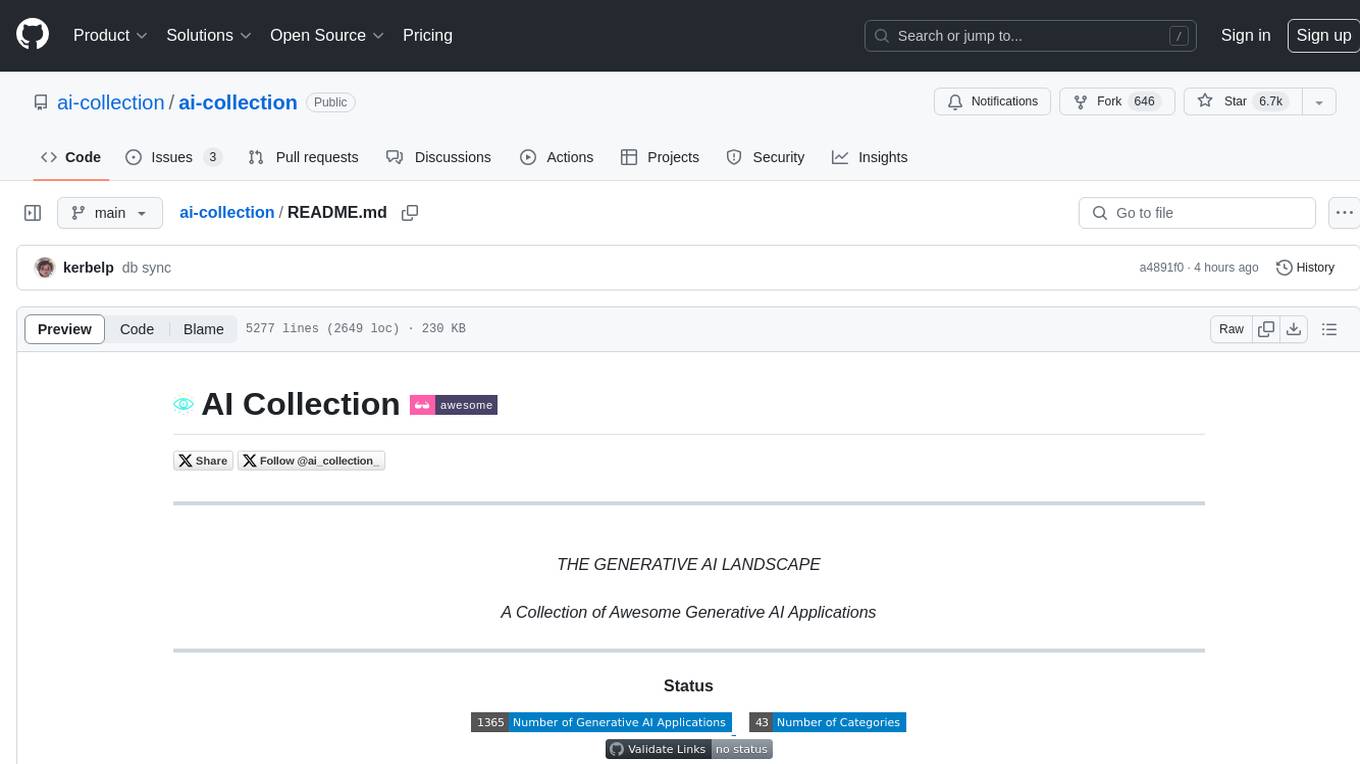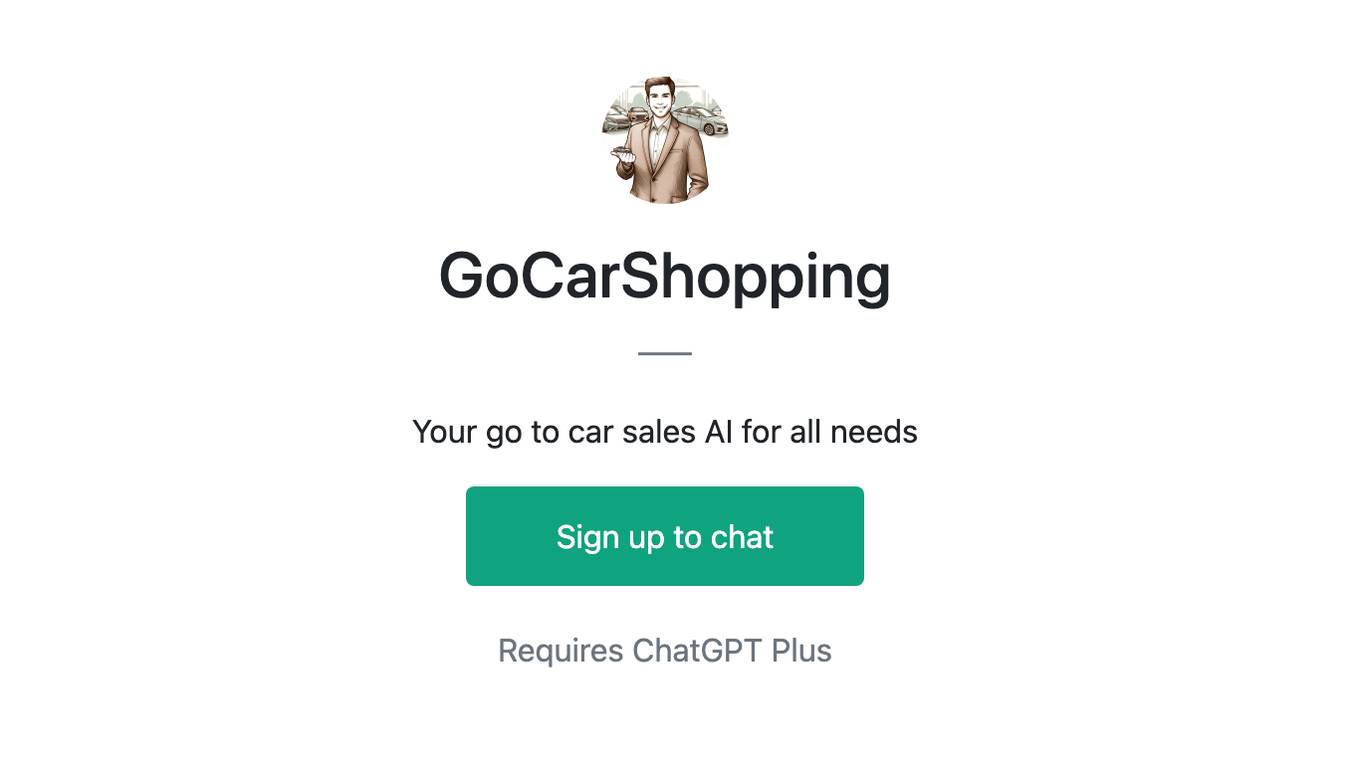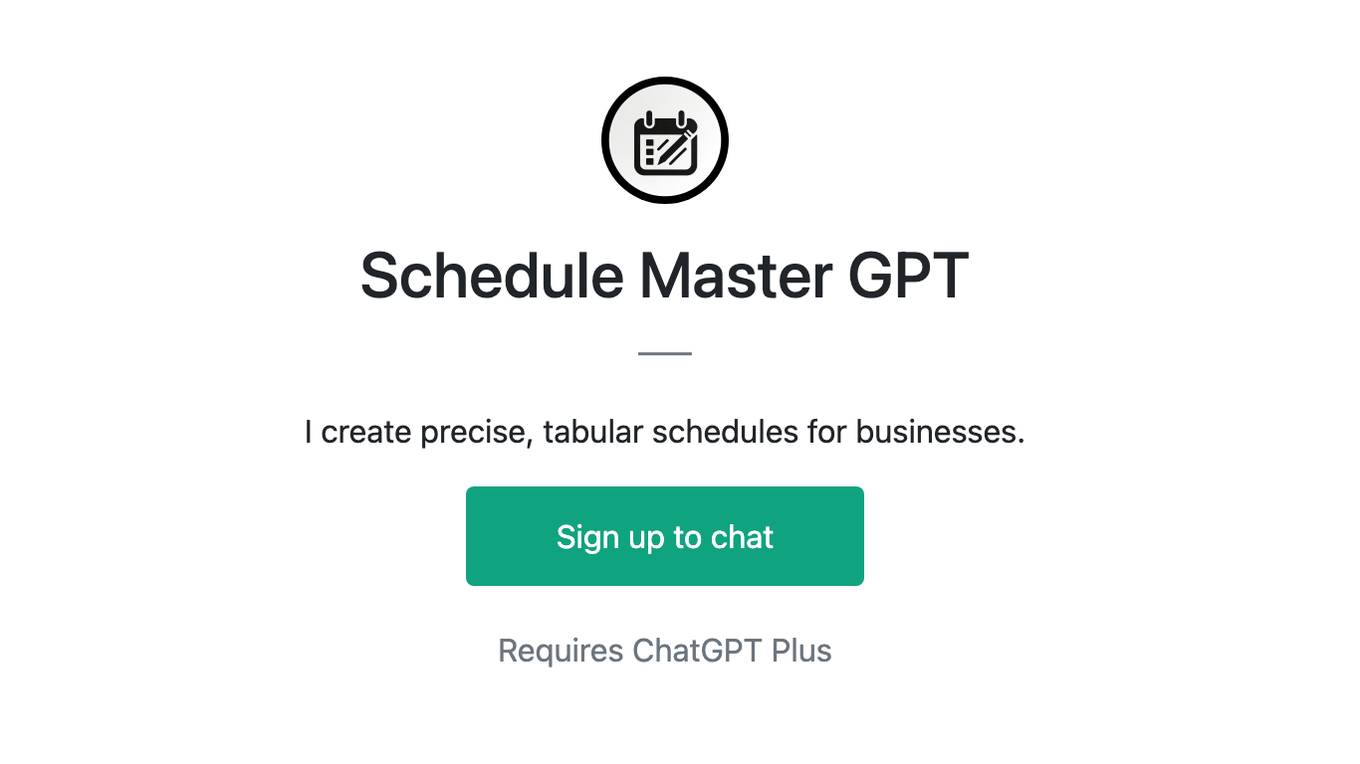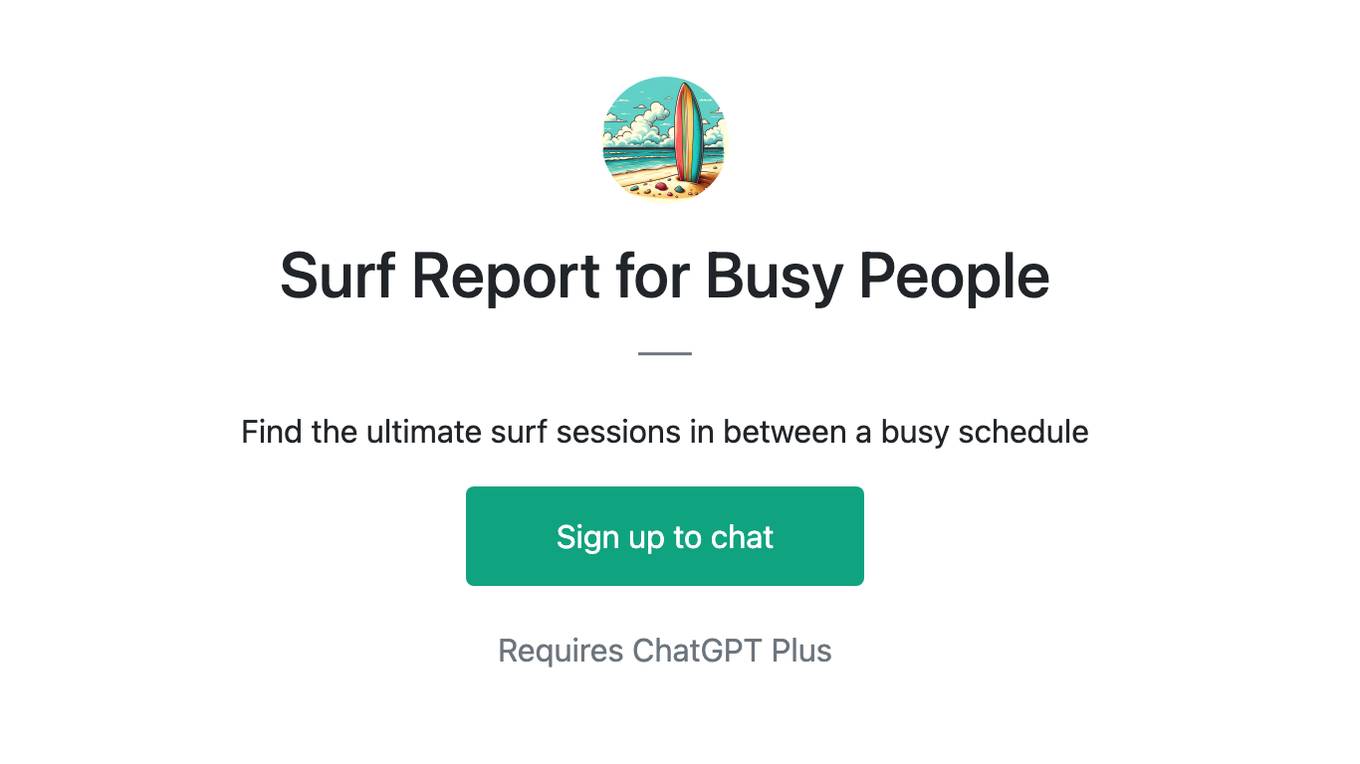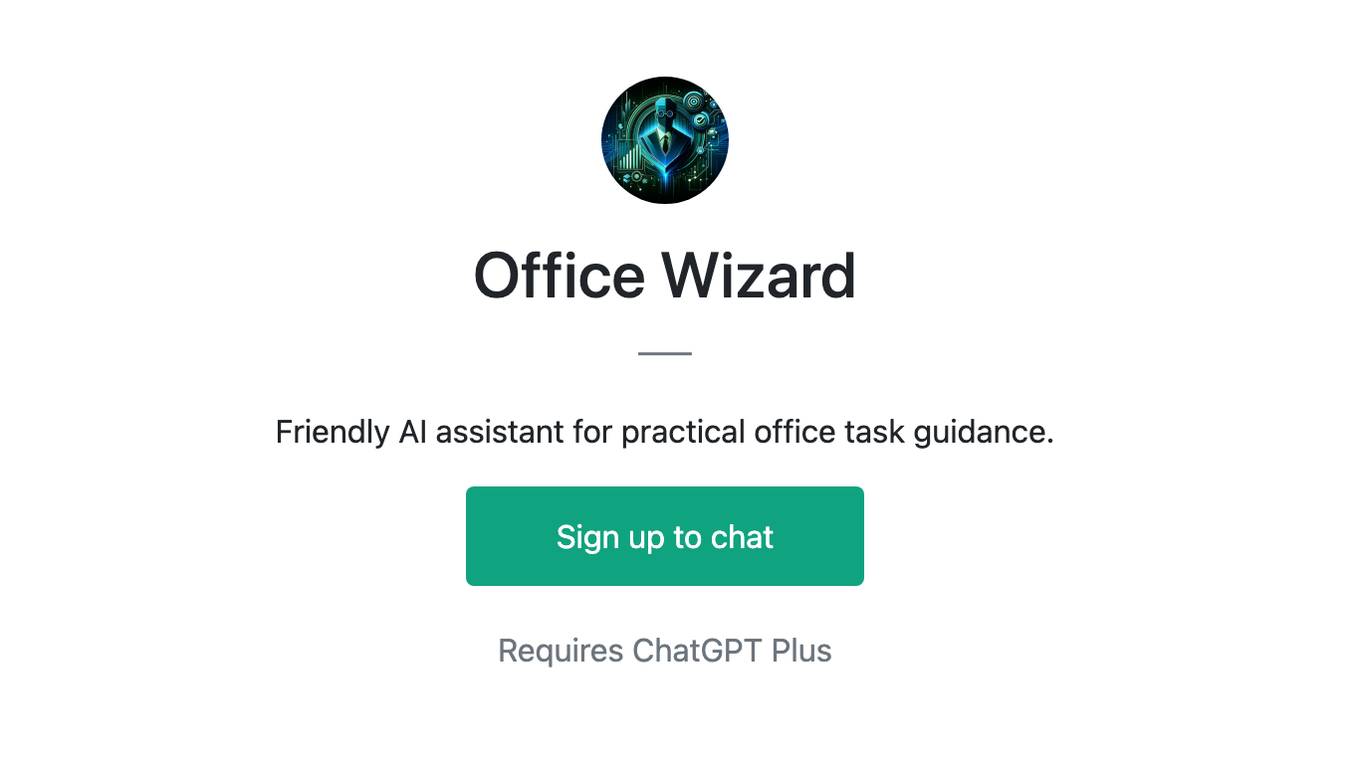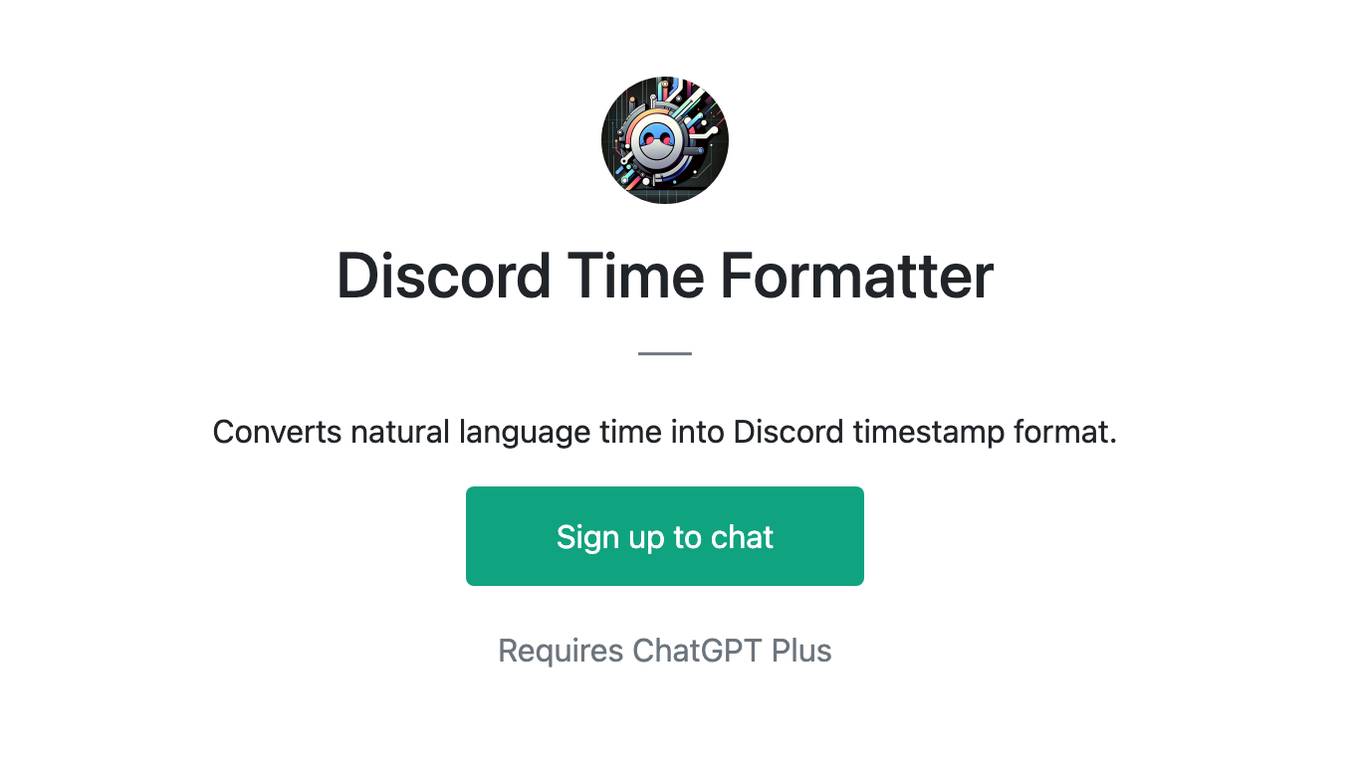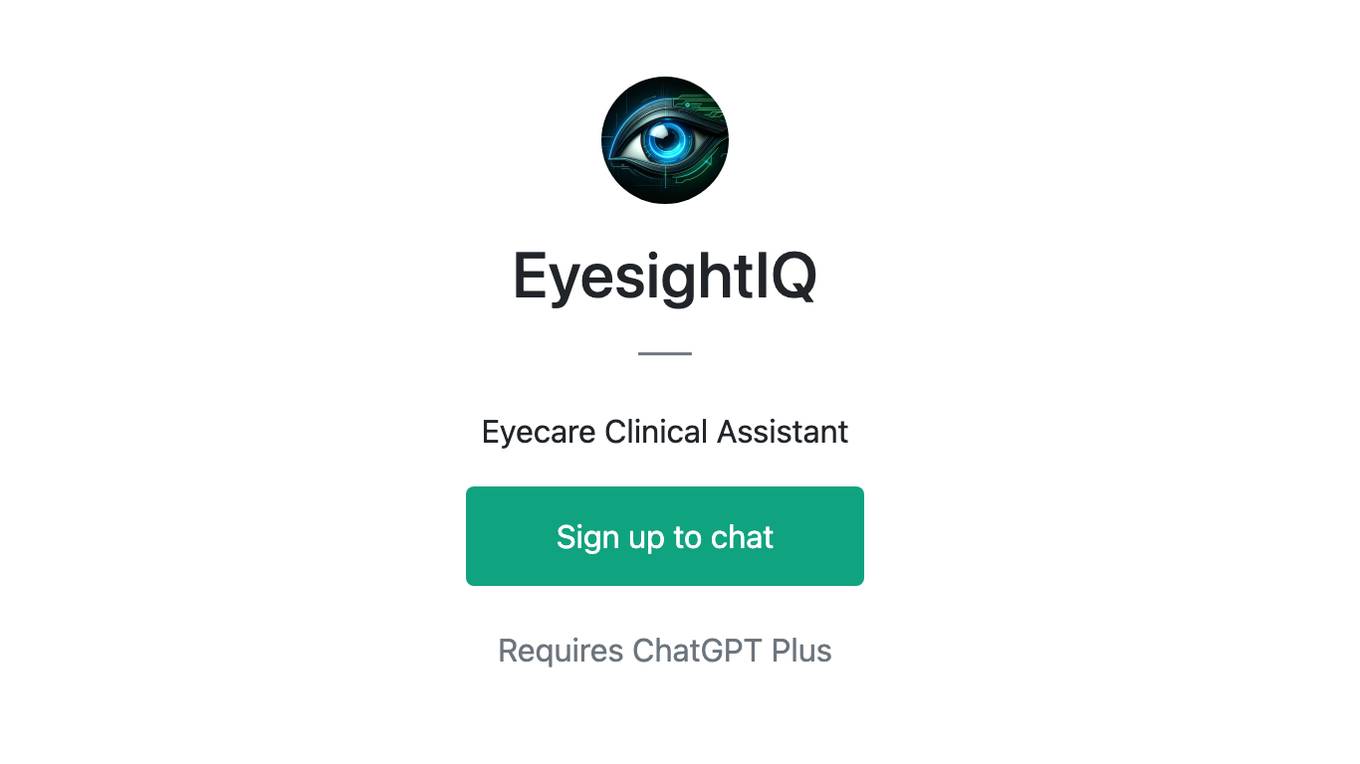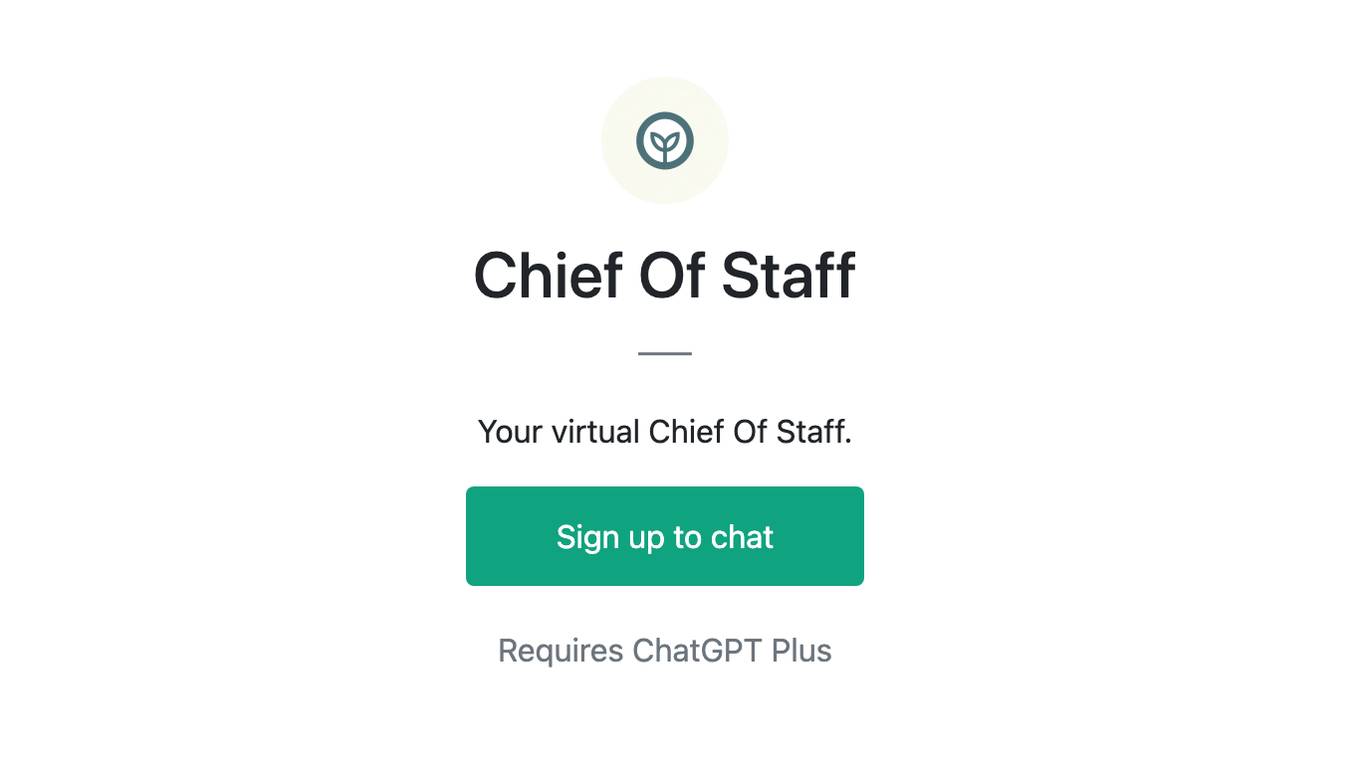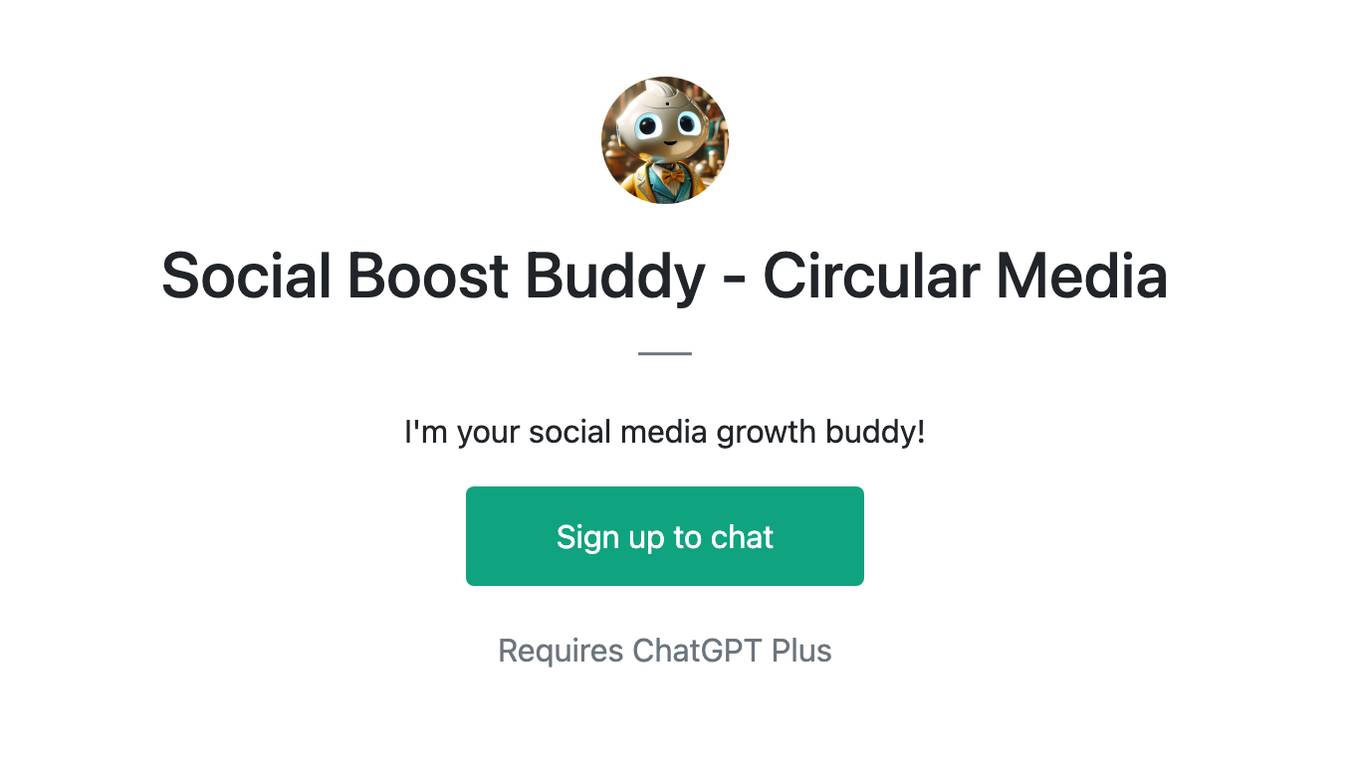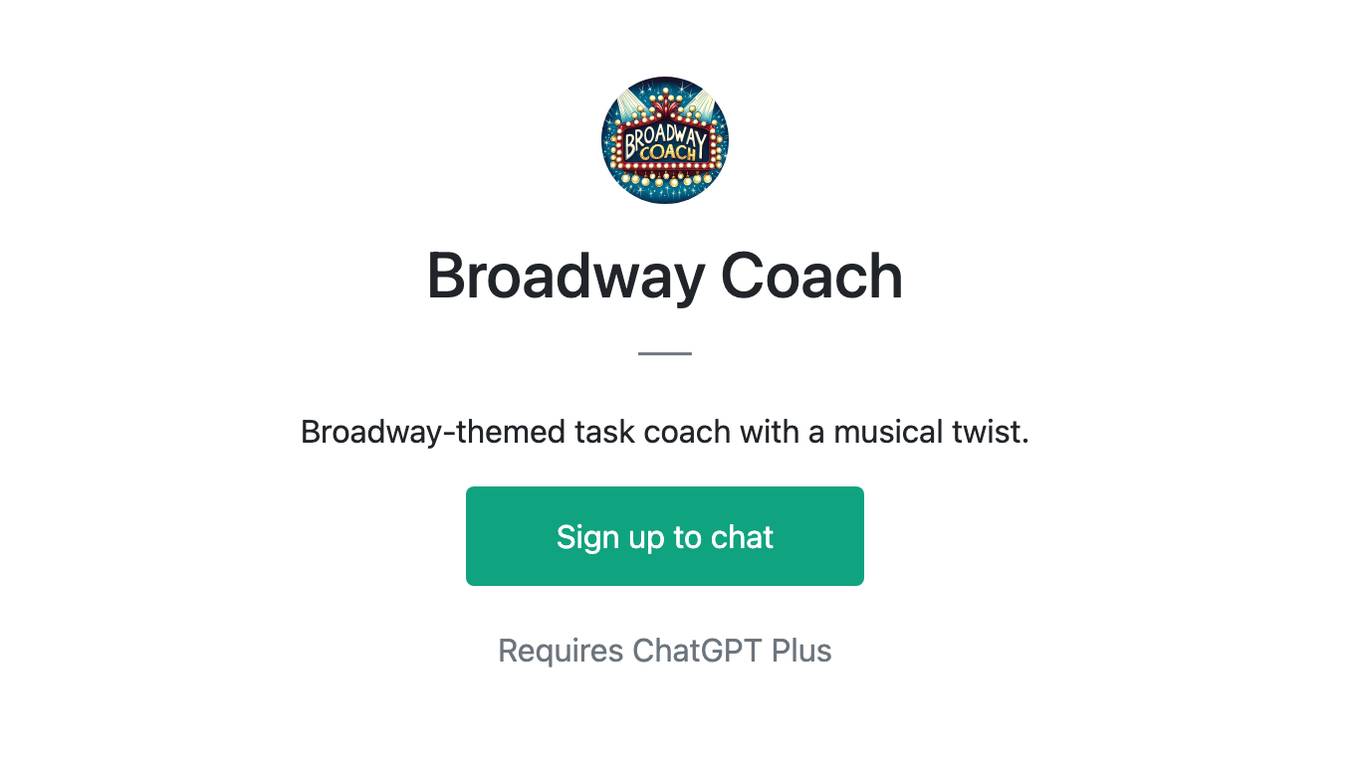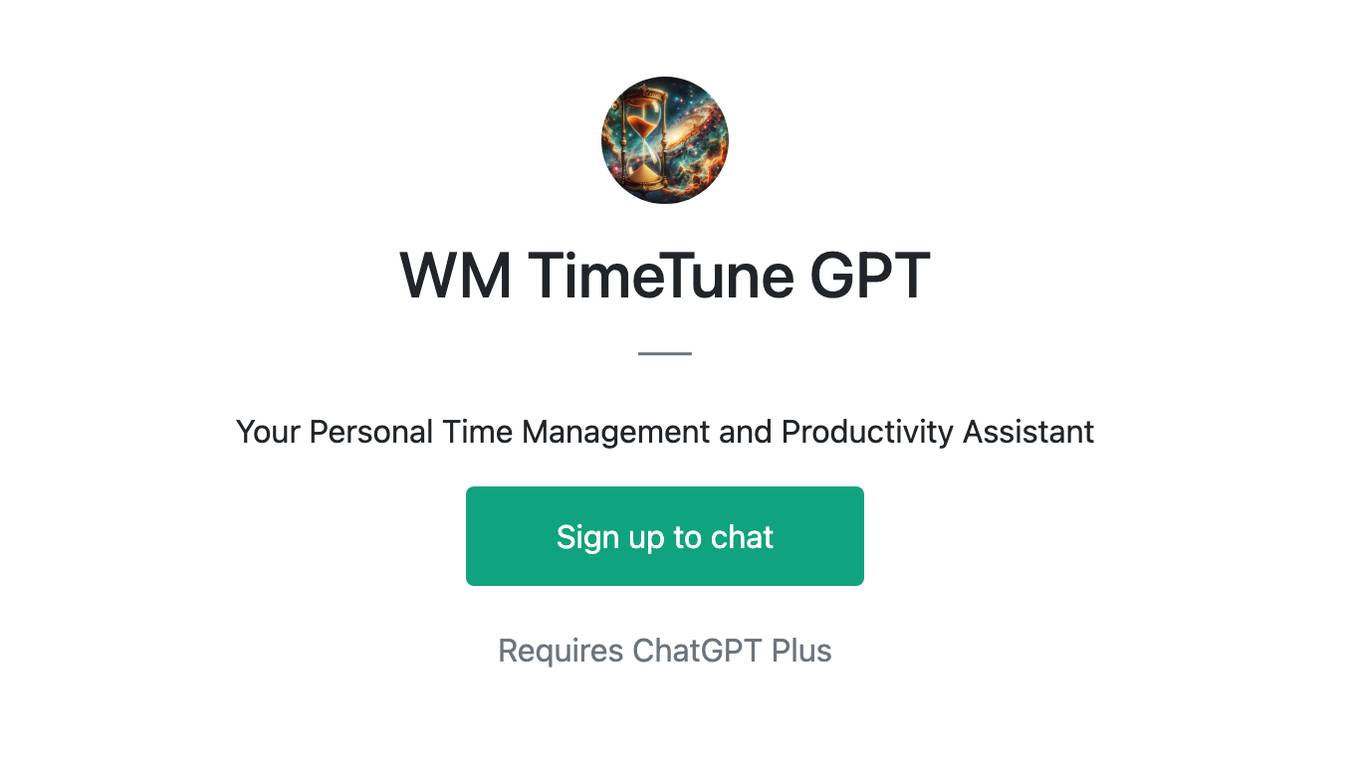Best AI tools for< schedule car appointments >
20 - AI tool Sites
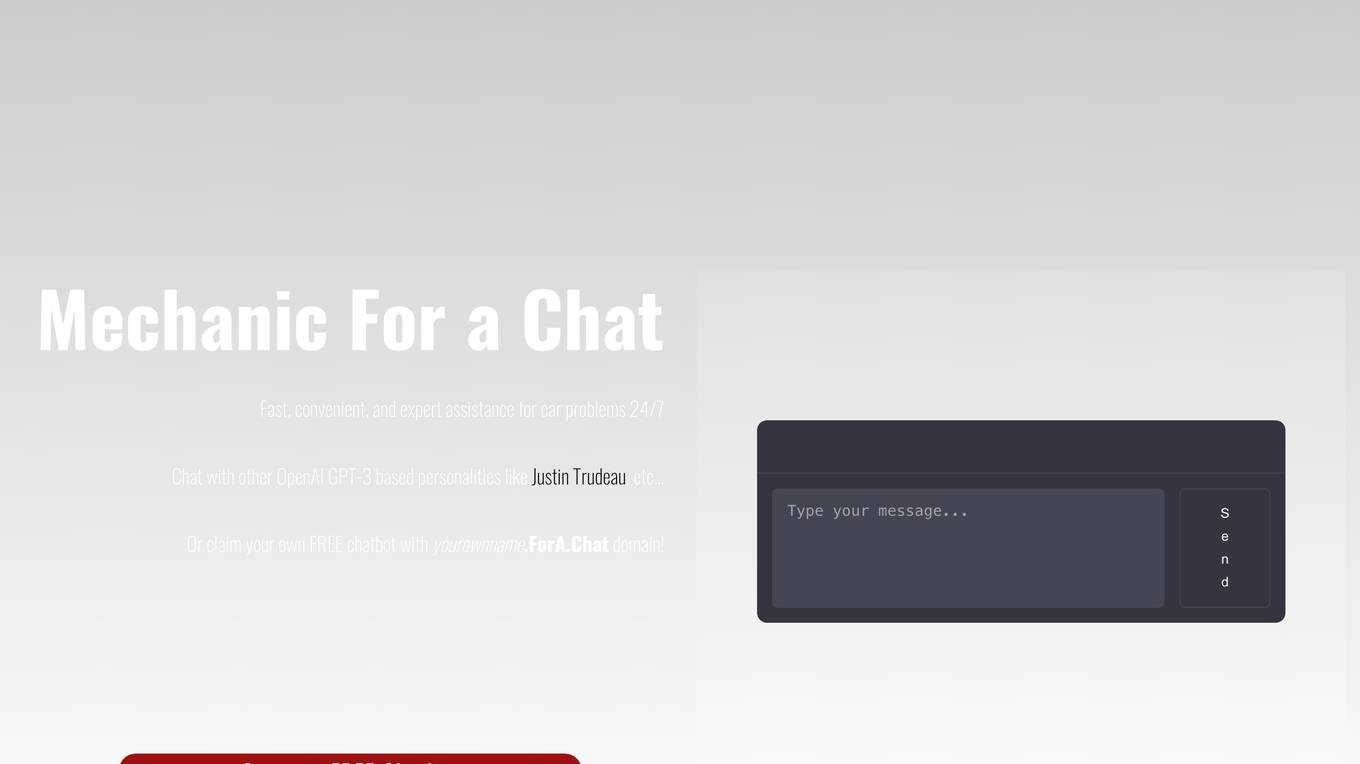
Mechanic For A Chat
Mechanic For A Chat is an online troubleshooting mechanic chatbot that provides fast, convenient, and expert assistance for car problems 24/7. It utilizes advanced natural language processing and machine learning algorithms to understand and interpret car problems and provide expert advice and recommendations. The chatbot is easy to use, does not require any special knowledge or technical skills, and can connect users with qualified mechanics for additional support. It also offers a range of other useful features, such as the ability to schedule appointments, view service history, and receive reminders for important maintenance tasks.

Dola
Dola is an AI-powered calendar assistant that helps you manage your schedule through messaging apps. With Dola, you can add events, edit them, and get reminders using natural language. Dola also integrates with your existing calendar apps, so you can keep all your events in one place.
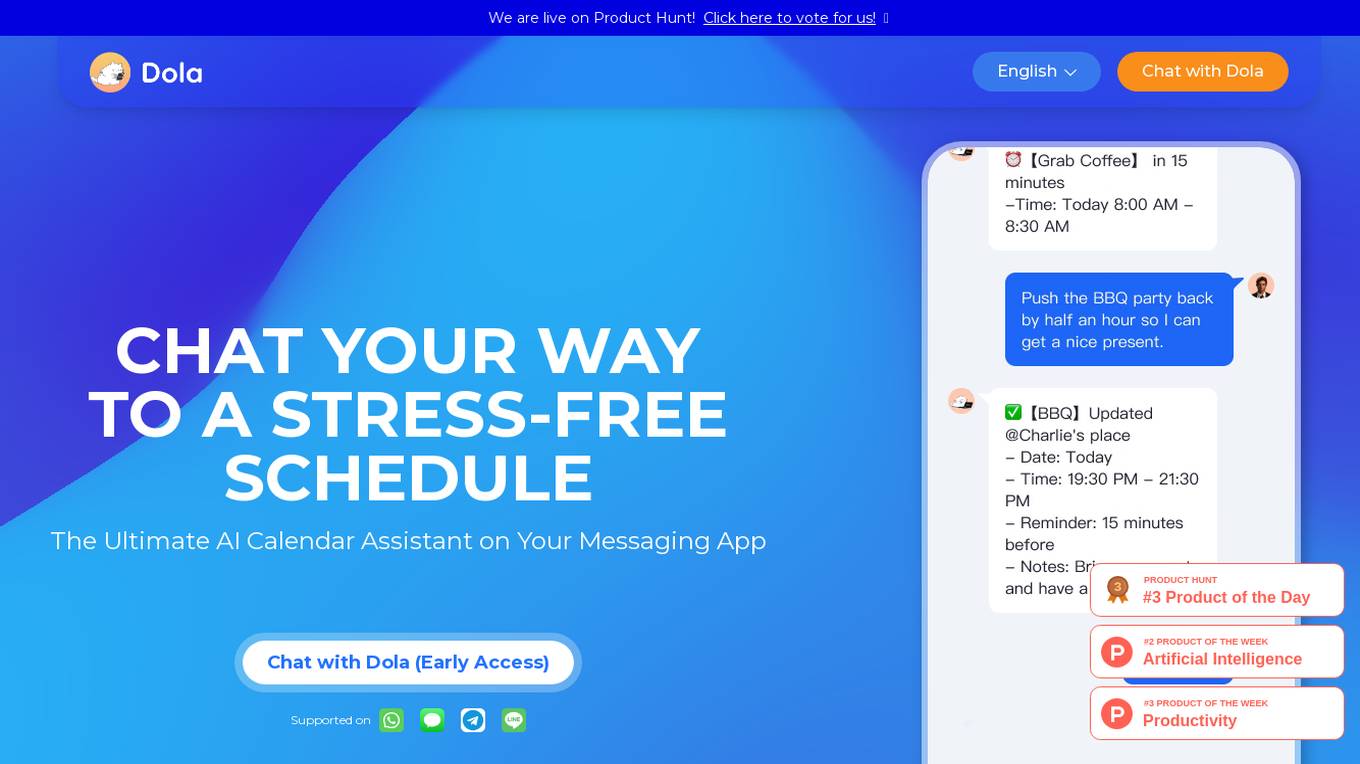
Dola
Dola is an AI-powered calendar assistant that helps you manage your schedule through messaging apps. With Dola, you can add events, edit them, and get reminders, all through natural language conversations. Dola also integrates with your existing calendar apps, so you can keep all your events in one place.
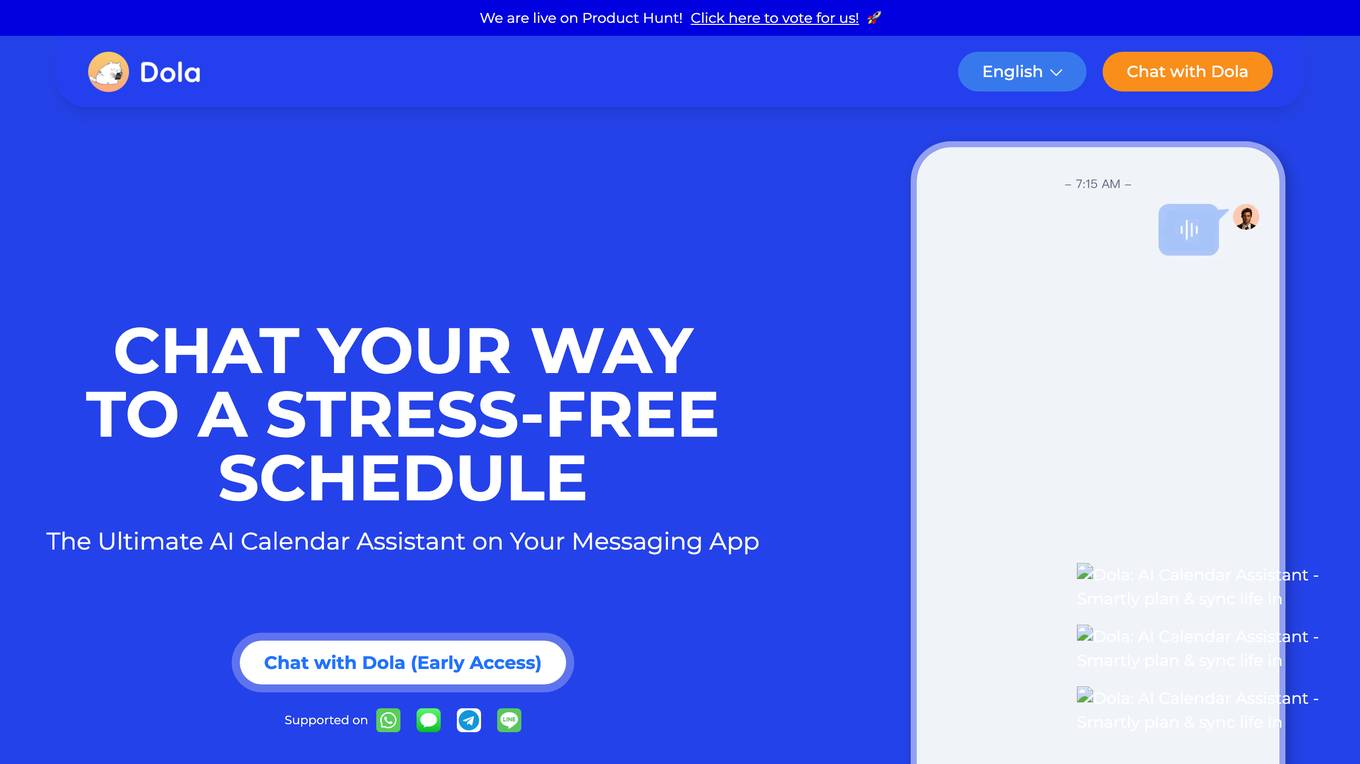
Dola
Dola is an AI-powered calendar assistant that helps you manage your schedule through messaging apps. With Dola, you can add events, edit them, and get reminders, all without having to fill out tedious forms or quote previous calendar events. Dola also supports group chats, so you can easily schedule events with friends and family. Dola is available on iOS, Android, and the web.
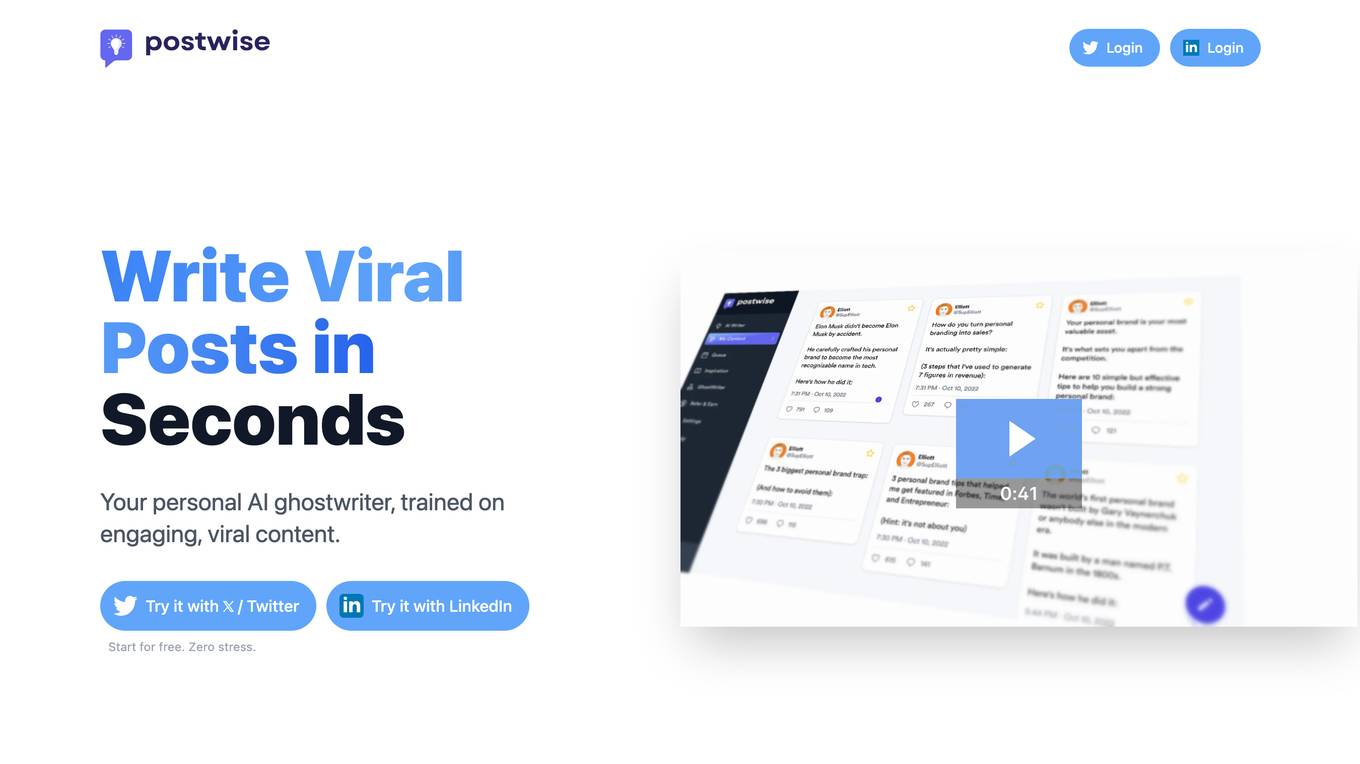
Postwise
Postwise is an AI-powered tool designed to help users write, schedule, and grow their presence on Twitter and LinkedIn effortlessly. It acts as a personal AI ghostwriter, generating engaging and viral content within seconds. With features like GrowthTools™ suite for increasing followers, AI tweet and LinkedIn writer for crafting impactful posts, and simple pricing plans, Postwise aims to streamline content creation and social media management for individuals and businesses.
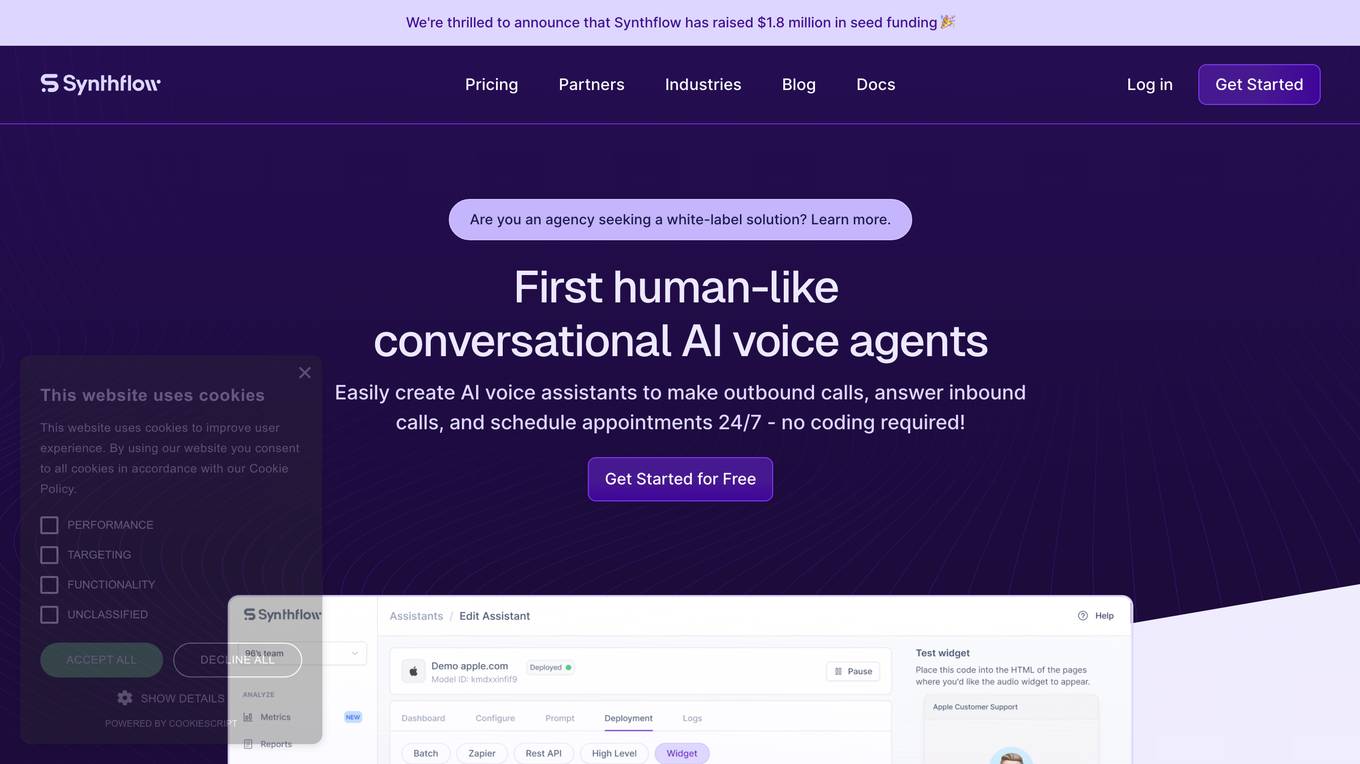
Synthflow AI
Synthflow AI is a conversational AI voice assistant platform that allows users to create AI voice assistants to make outbound calls, answer inbound calls, and schedule appointments 24/7 without coding. It offers a range of features such as human-like voice assistants, ready-made templates, real-time appointment booking, and integrations with popular apps. Synthflow AI is suitable for various industries and use cases, including sales, marketing, customer service, and healthcare.
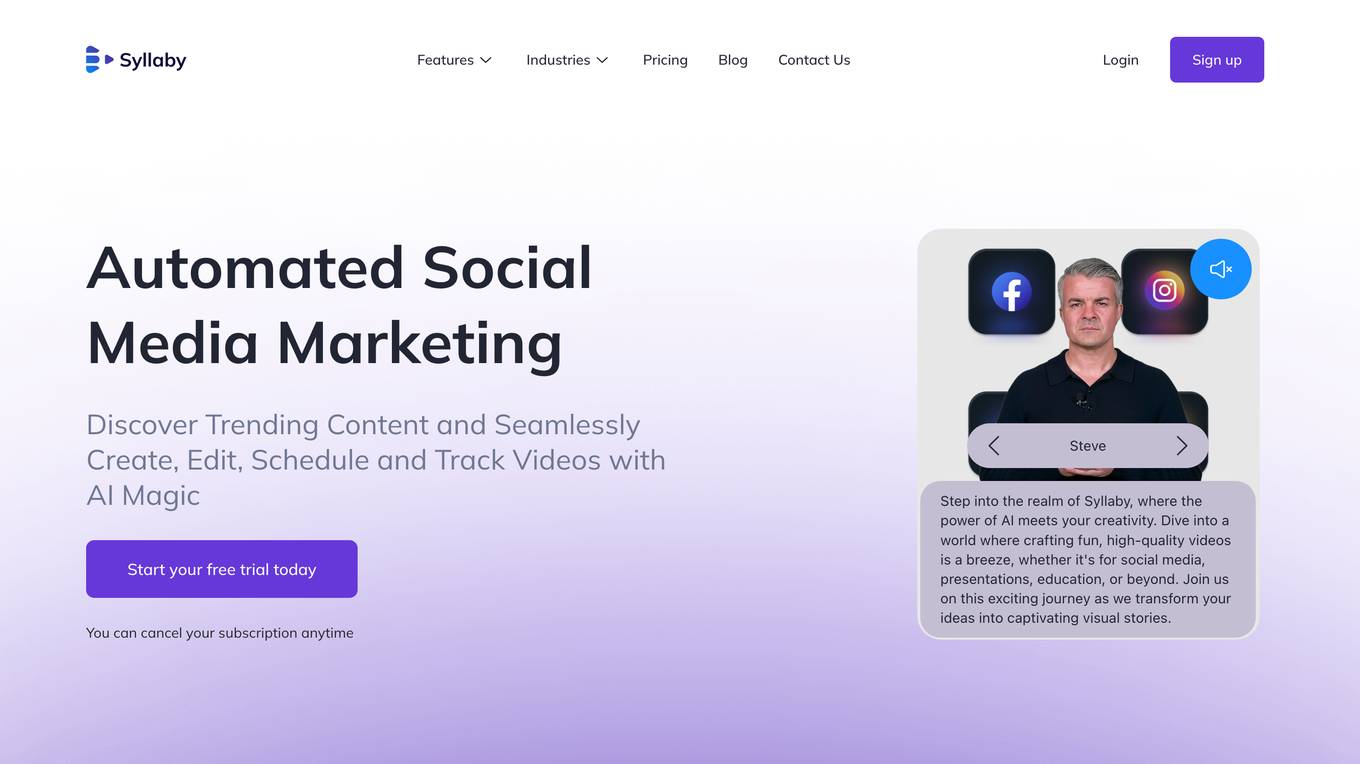
Syllaby
Syllaby is an AI-powered tool that streamlines the process of creating viral social media videos for businesses by assisting with ideation, content scheduling, outline and script generation, and even avatar-based video creation. It offers a systematic workflow tailored to various industries, along with features like an organizational content calendar and in-tool tutorials, making video marketing more accessible and efficient.

Boomerang for Gmail
Boomerang for Gmail is a meeting scheduling and email management tool that helps you save time and be more productive. With Boomerang, you can schedule emails to be sent later, set reminders to follow up on messages, and pause your inbox to avoid distractions. Boomerang also includes a number of AI-powered features, such as Respondable, which helps you write better emails, and Inbox Pause, which helps you manage your email flow more effectively.
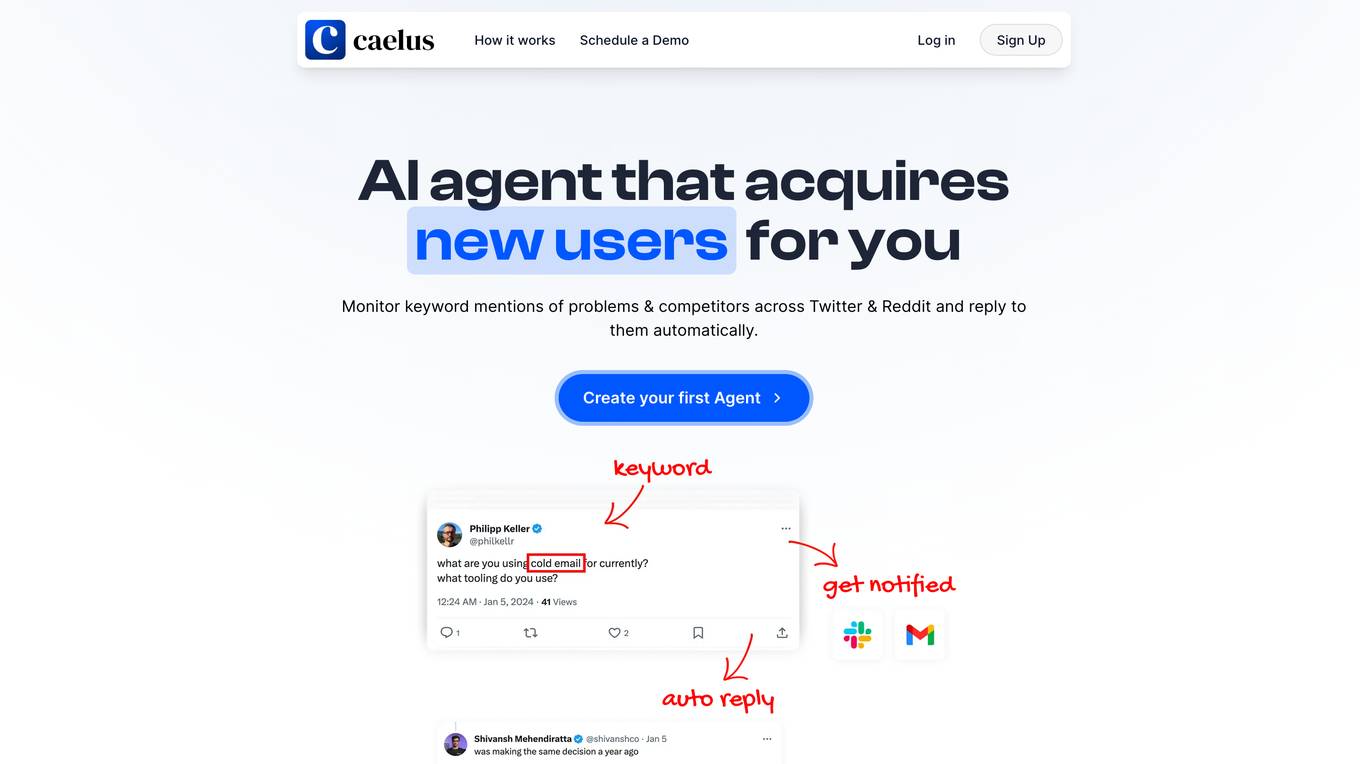
Caelus AI
Caelus AI is an AI-powered tool that helps businesses acquire new users by monitoring keyword mentions of problems and competitors across Twitter and Reddit, and replying to them automatically. It uses natural language processing to understand the intent of each mention and respond in a personalized way, sounding like the business itself. Caelus AI also learns from the business's existing Twitter and Reddit posts to ensure that its responses are consistent with the brand's voice and tone.
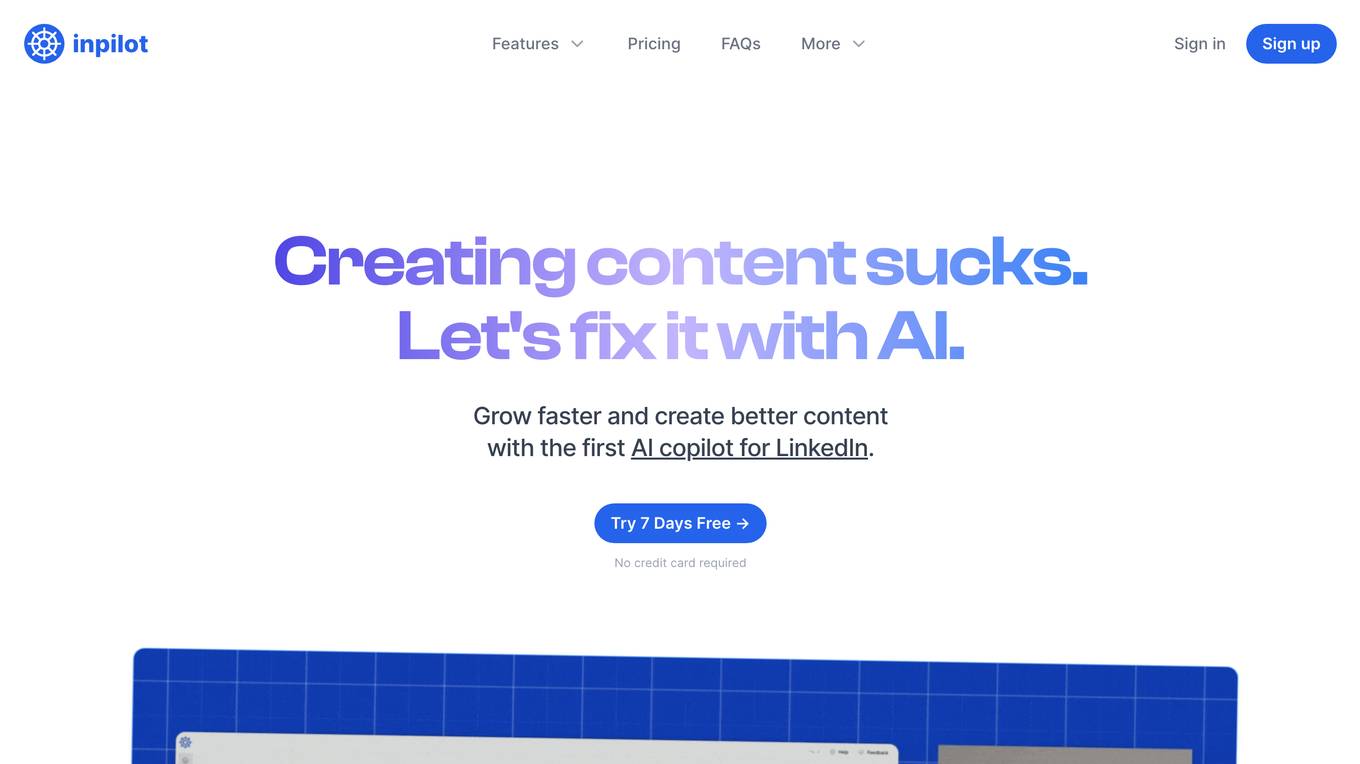
inpilot
inpilot is an AI-powered platform that helps you grow your LinkedIn network and achieve your business or career goals. It does this by providing you with a variety of features, including scheduling posts, AI-powered writing, post idea generator, statistics, and reports. inpilot is for anyone who wants to grow their personal brand on LinkedIn effortlessly - and without wasting time. This includes creators who want to increase their reach and produce better content faster, professionals who want to connect with more industry leaders, and entrepreneurs looking to grow their network and their business.

Tailwind
Tailwind is an AI-enhanced social media and email marketing tool that leverages advanced AI technology to help businesses grow their online presence and engage with their target audience effectively. The tool offers a wide range of features such as AI-generated marketing content, social design creation, scheduling and distribution across multiple networks, hashtag finder, personalized post times, and more. Tailwind is designed to simplify the marketing process for businesses by providing tailored marketing plans, personalized designs, and automated optimization, ultimately saving time and effort for users.

LaterOn
LaterOn is a newsletter aggregator and reader that provides a distraction-free reading experience for newsletters without flooding your inbox. It allows you to subscribe to as many newsletters as you want and will collect, summarize, and forward them to you in one email per week or month. LaterOn also has an AI companion that you can ask anything about the newsletter content.
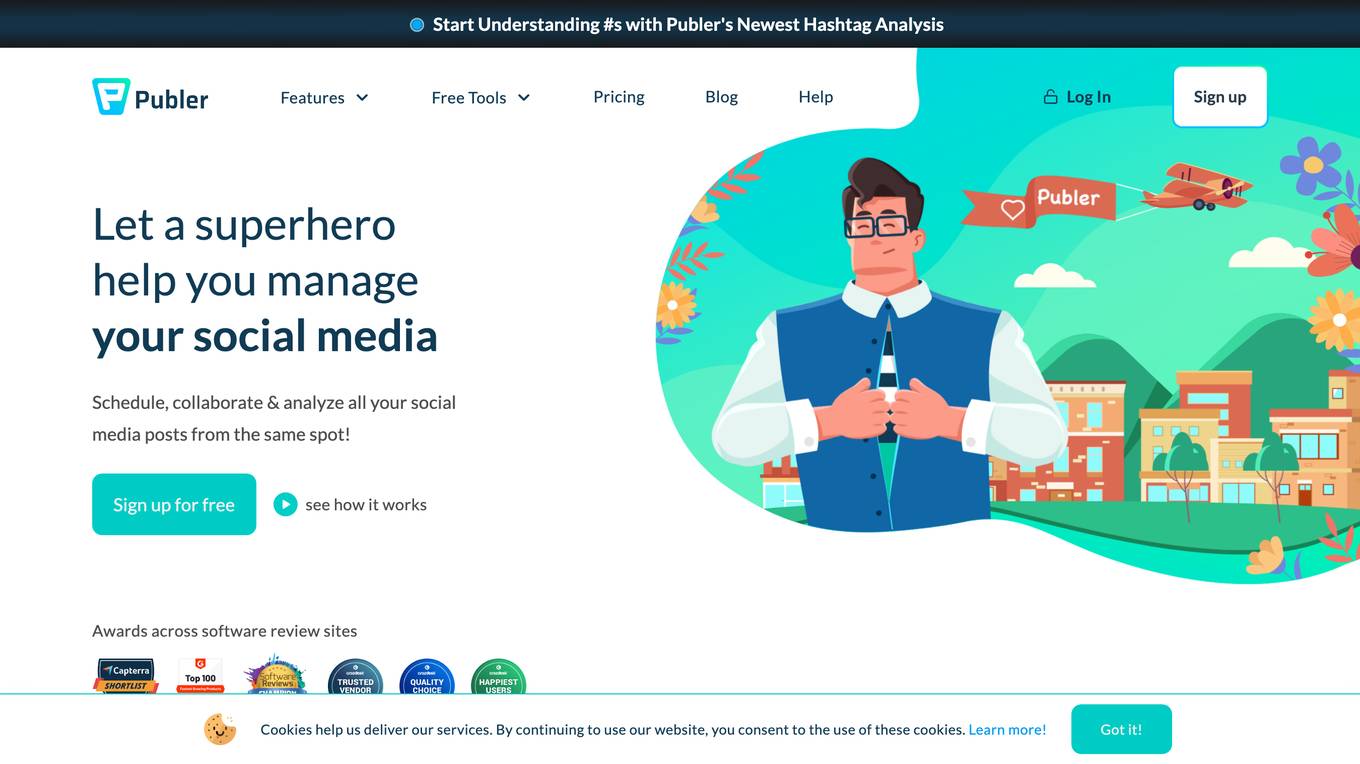
Publer
Publer is a social media management platform that allows you to collaborate, schedule, and analyze your posts on various platforms including Facebook, Instagram, TikTok, Twitter, Mastodon, LinkedIn, Pinterest, Google Business, YouTube, WordPress, and Telegram. It offers features such as AI Assist, calendar view, link in bio, workspaces, analytics, and integrations with cloud storage, Canva & VistaCreate, photo editor, RSS feeds, and browser extension.
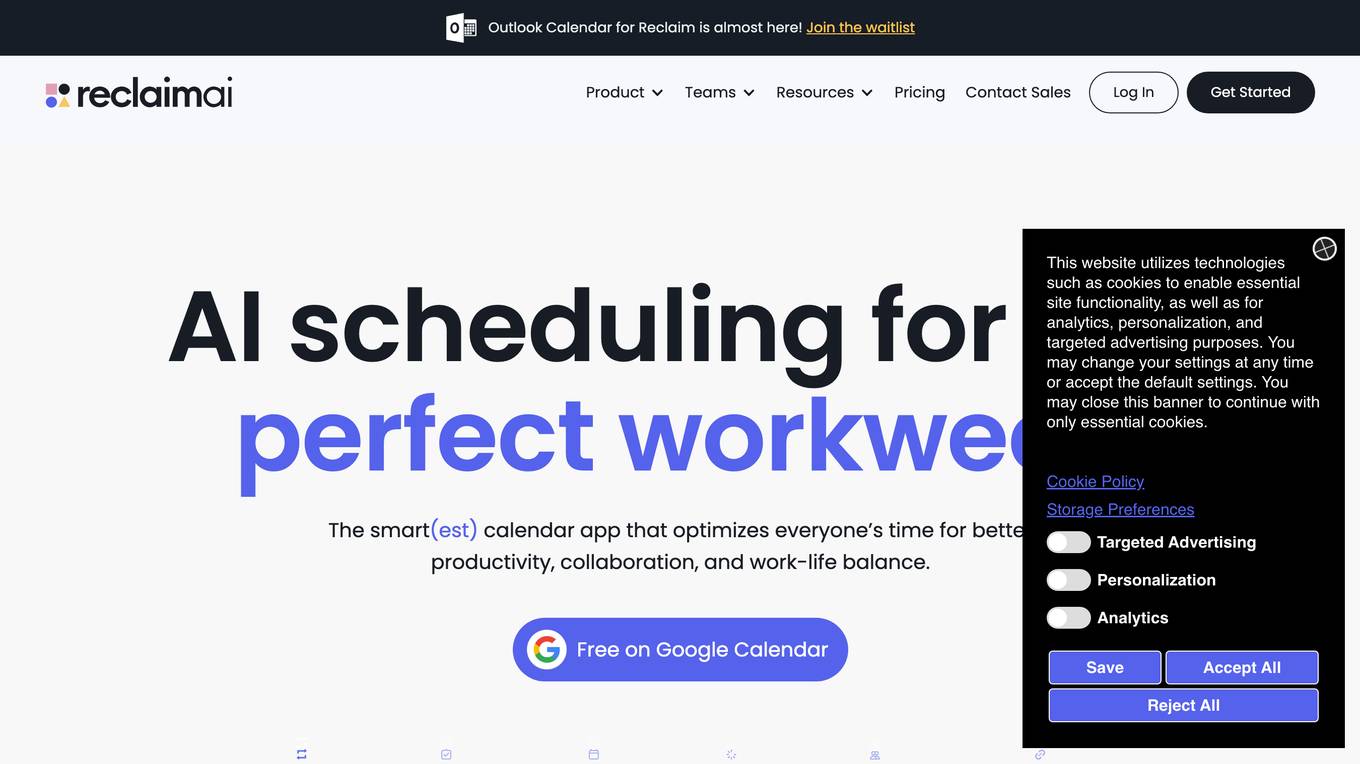
Reclaim
Reclaim is an AI-powered scheduling app that helps teams optimize their time and improve productivity. It offers a range of features, including smart scheduling, task management, meeting optimization, and work-life balance tools. Reclaim integrates with popular calendar and task management apps, making it easy to manage your schedule and tasks in one place.
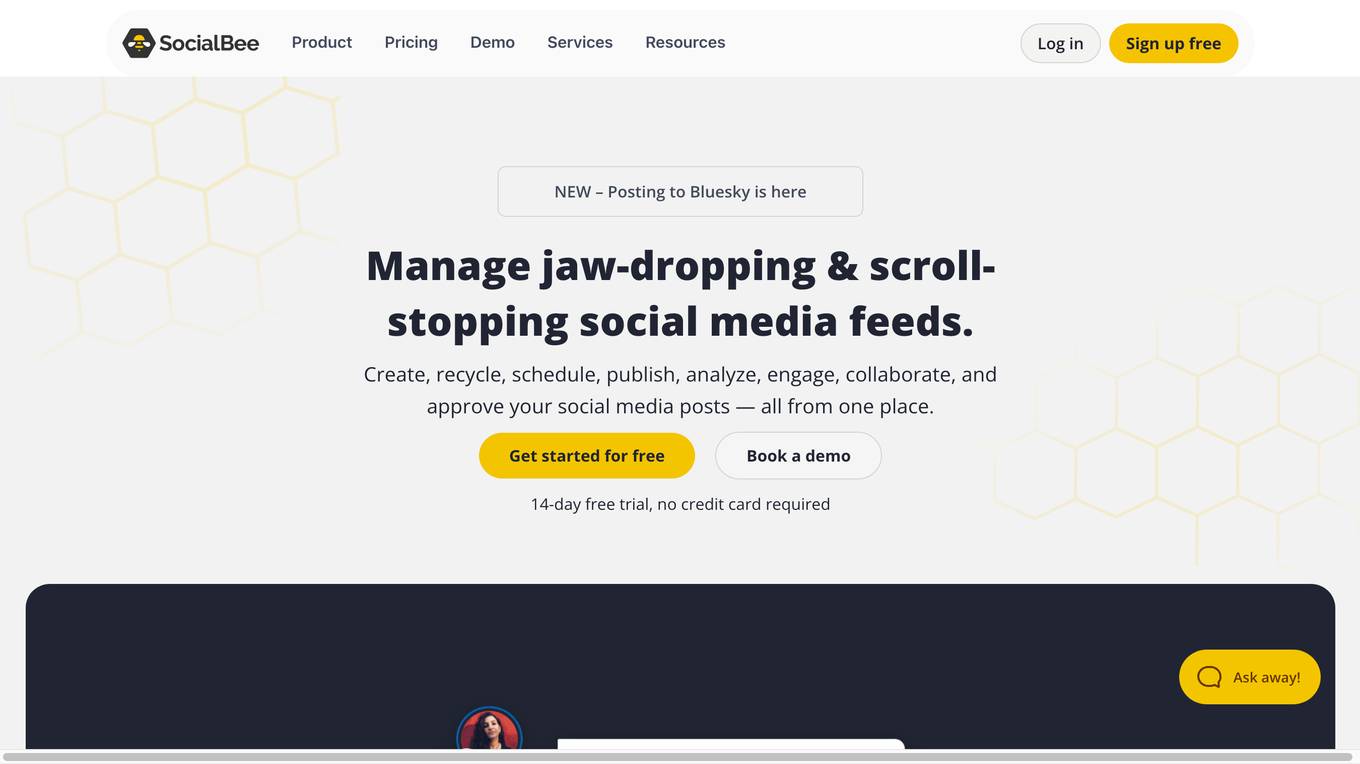
SocialBee
SocialBee is an AI-powered social media management tool that helps businesses and individuals manage their social media accounts efficiently. It offers a range of features, including content creation, scheduling, analytics, and collaboration, to help users plan, create, and publish engaging social media content. SocialBee also provides insights into social media performance, allowing users to track their progress and make data-driven decisions.
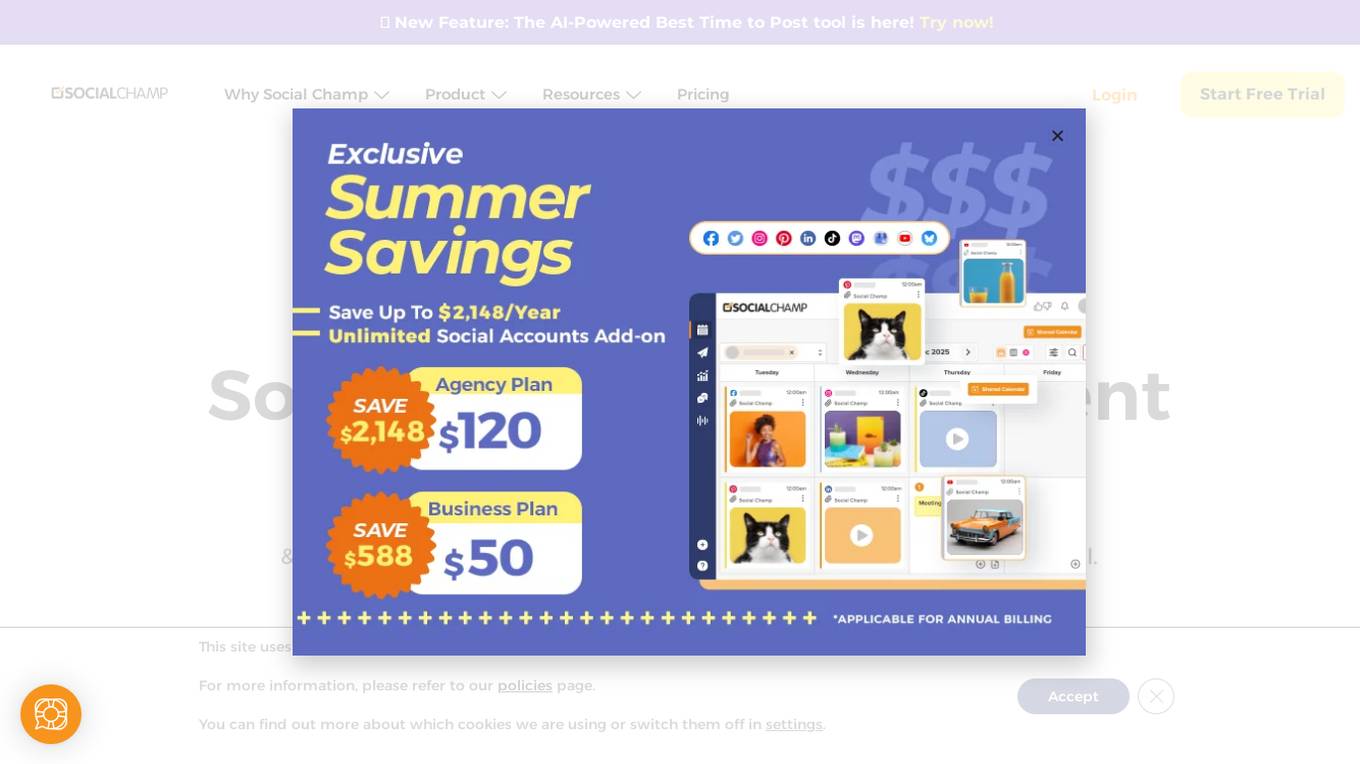
Social Champ
Social Champ is a social media management tool designed for agencies, startups, SMBs, entrepreneurs, marketers, and influencers. It offers powerful social media management capabilities with multiple automation features and integrations. Users can create, schedule, organize, and analyze multiple social accounts, manage conversations, and maximize exposure intelligently. The tool provides features such as publishing, calendar management, analytics tracking, engagement tools, and platform integrations. Social Champ aims to streamline social media efforts, boost productivity, and enhance effectiveness for social media marketing.
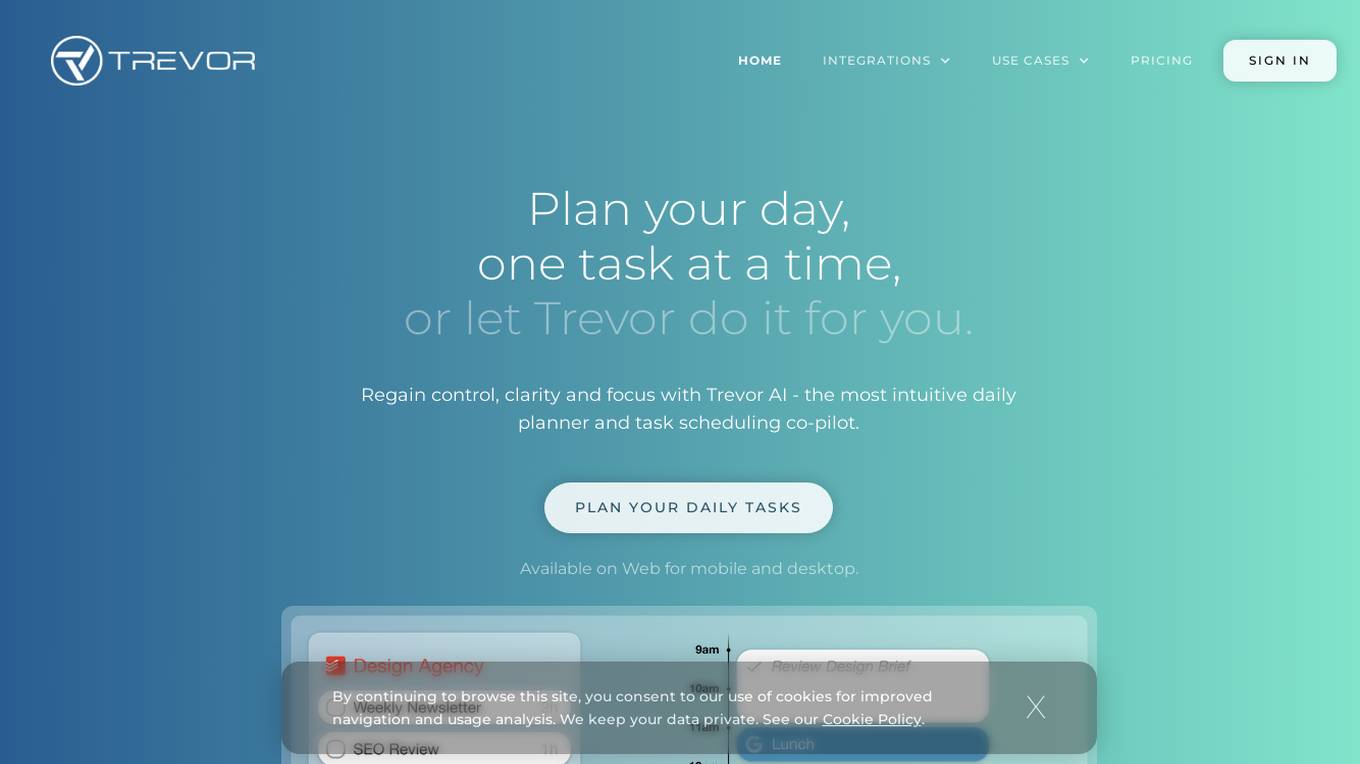
Trevor AI
Trevor AI is a daily planner and task scheduling co-pilot that helps users organize, schedule, and automate their tasks. It features a task hub, calendar integration, AI scheduling suggestions, focus mode, and daily planning insights. Trevor AI is designed to help users improve their productivity, clarity, and focus.
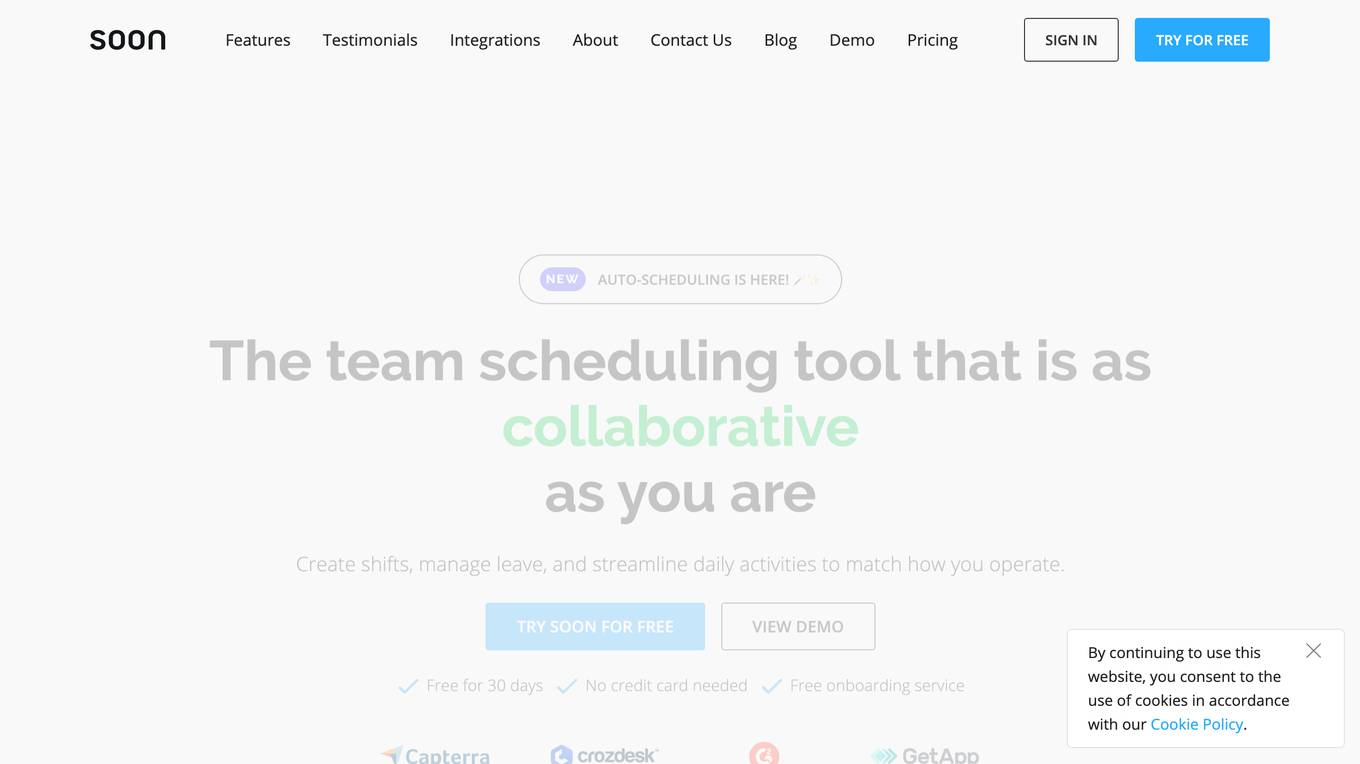
Soon
Soon is a workforce management software that offers event-based scheduling and security features to help businesses create schedules that mirror their operations. It automates shift scheduling, improves employee experience, and provides workload management tools. Soon also offers features like intraday planning, leave management, and automated scheduling. The software aims to streamline daily activities, enhance team communication, and boost productivity by providing a user-friendly and efficient scheduling solution.
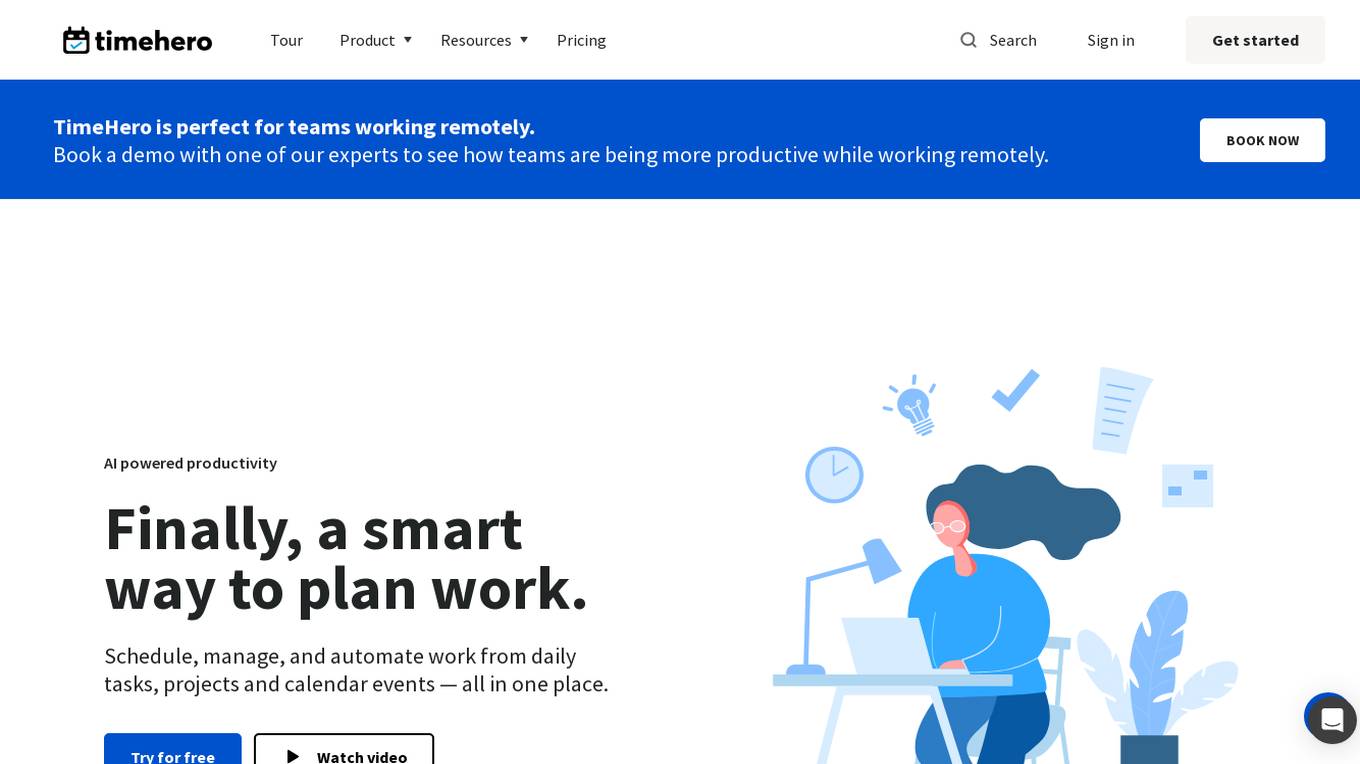
TimeHero
TimeHero is an AI-powered productivity tool that offers smart task planning and work management solutions for teams and individuals. It helps users schedule, manage, and automate daily tasks, projects, and calendar events in one centralized platform. TimeHero stands out by automatically planning when to work on tasks based on availability, adjusting plans instantly when events change, tasks are completed early, or priorities shift. With features like adaptive planning, autonomous recurring tasks, smart workflow templates, built-in time tracking, automatic risk detection, and project forecasting, TimeHero streamlines work processes and enhances productivity for remote and in-office teams alike.
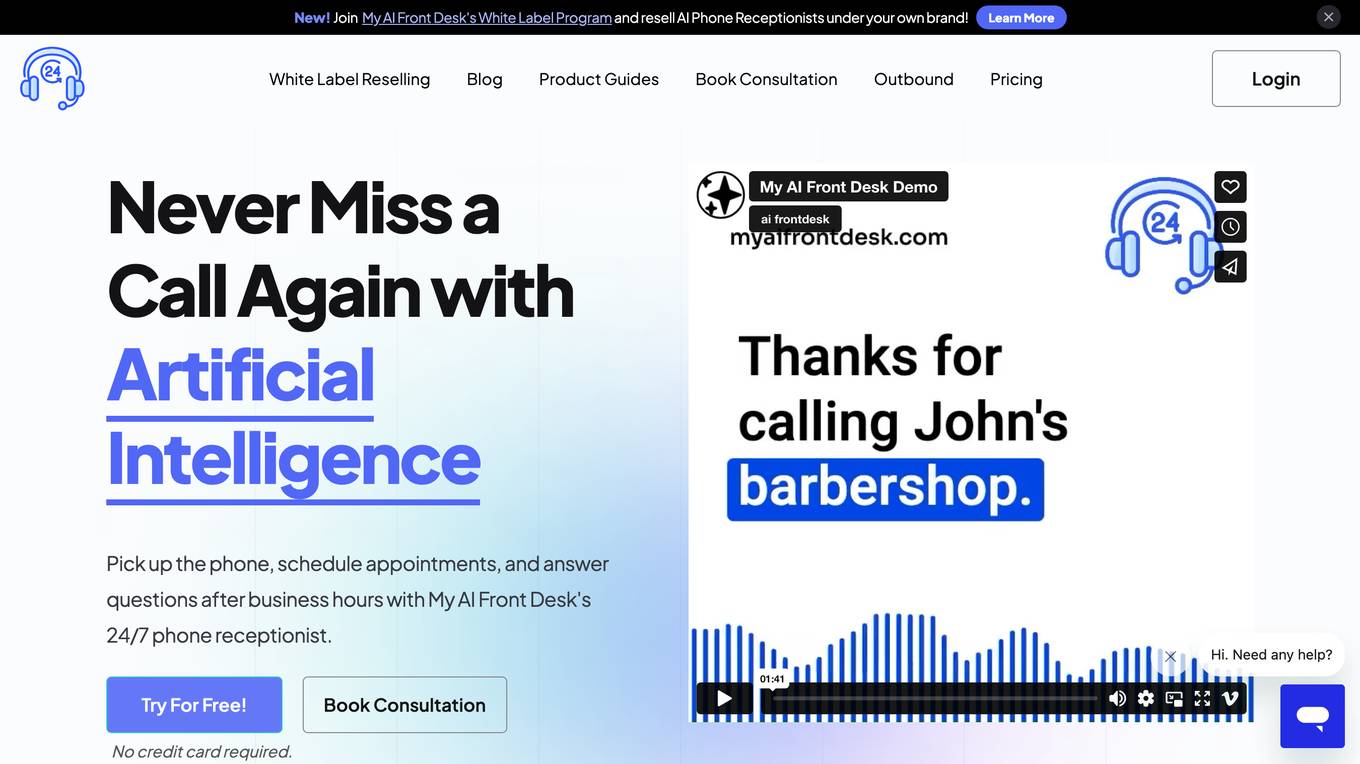
My AI Front Desk
My AI Front Desk is a virtual receptionist software designed for small businesses to automate scheduling and Q&A over the phone. It serves as a 24/7 phone receptionist that can answer calls, schedule appointments, and provide information about the business even outside of regular business hours. The application is tailored to understand the specific needs of each business and can intelligently interact with callers to provide a seamless experience. With advanced AI systems, My AI Front Desk offers a cost-effective solution for businesses to enhance customer interactions and streamline their phone reception services.
20 - Open Source AI Tools

AiTreasureBox
AiTreasureBox is a versatile AI tool that provides a collection of pre-trained models and algorithms for various machine learning tasks. It simplifies the process of implementing AI solutions by offering ready-to-use components that can be easily integrated into projects. With AiTreasureBox, users can quickly prototype and deploy AI applications without the need for extensive knowledge in machine learning or deep learning. The tool covers a wide range of tasks such as image classification, text generation, sentiment analysis, object detection, and more. It is designed to be user-friendly and accessible to both beginners and experienced developers, making AI development more efficient and accessible to a wider audience.
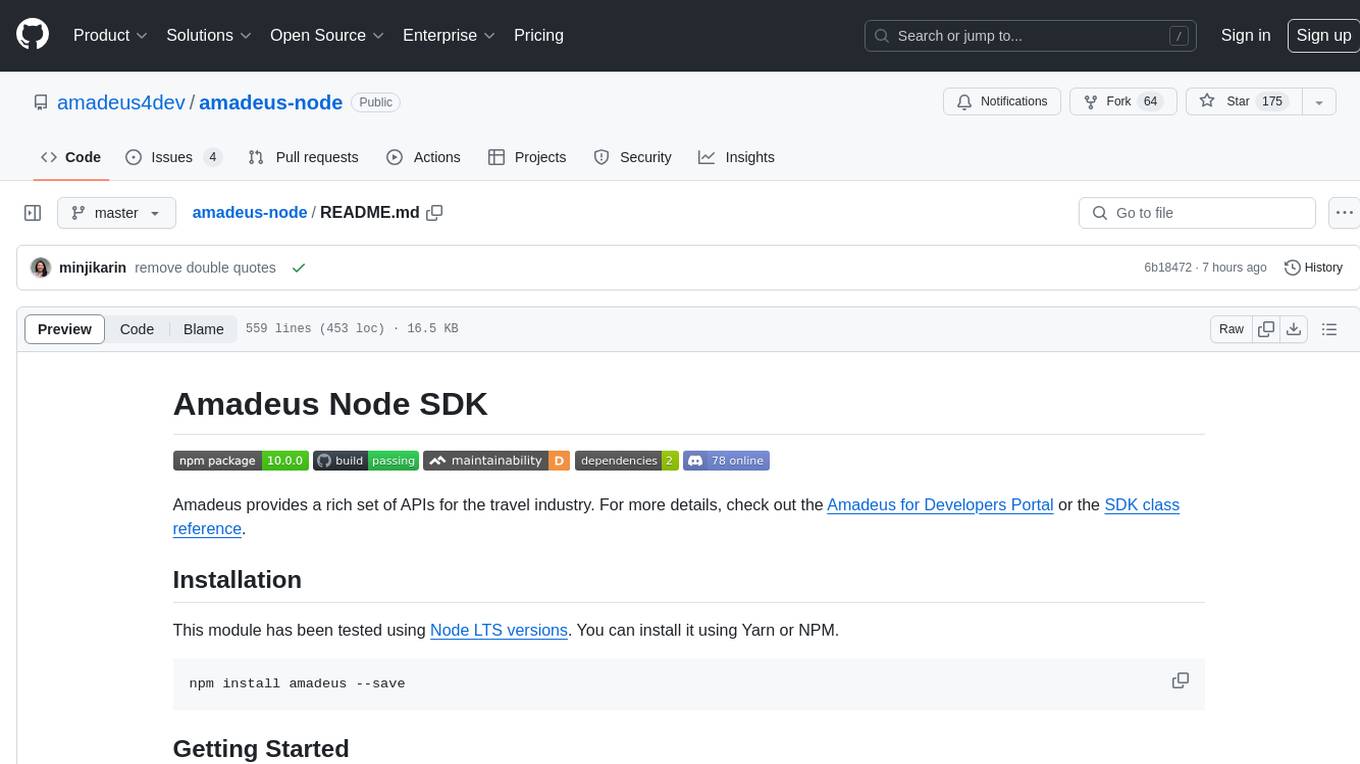
amadeus-node
Amadeus Node SDK provides a rich set of APIs for the travel industry. It allows developers to interact with various endpoints related to flights, hotels, activities, and more. The SDK simplifies making API calls, handling promises, pagination, logging, and debugging. It supports a wide range of functionalities such as flight search, booking, seat maps, flight status, points of interest, hotel search, sentiment analysis, trip predictions, and more. Developers can easily integrate the SDK into their Node.js applications to access Amadeus APIs and build travel-related applications.

uAgents
uAgents is a Python library developed by Fetch.ai that allows for the creation of autonomous AI agents. These agents can perform various tasks on a schedule or take action on various events. uAgents are easy to create and manage, and they are connected to a fast-growing network of other uAgents. They are also secure, with cryptographically secured messages and wallets.
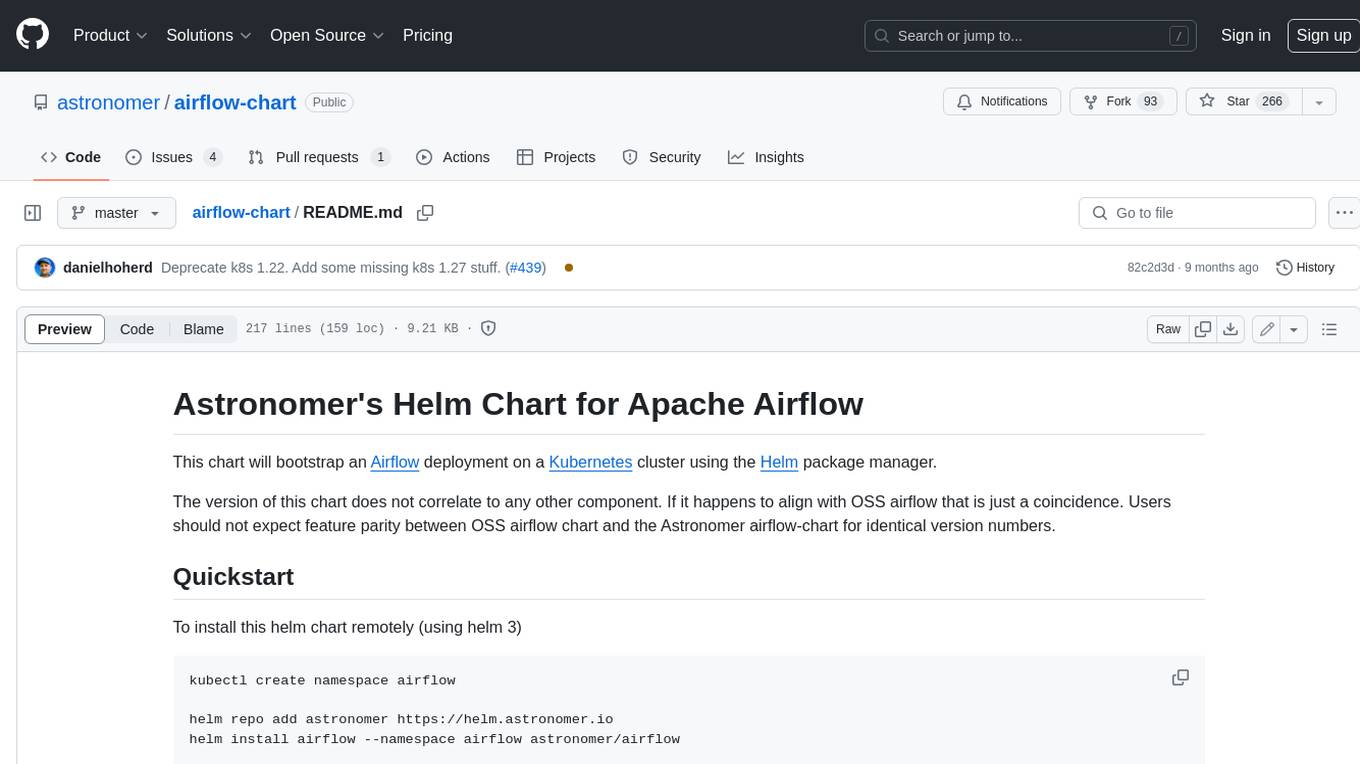
airflow-chart
This Helm chart bootstraps an Airflow deployment on a Kubernetes cluster using the Helm package manager. The version of this chart does not correlate to any other component. Users should not expect feature parity between OSS airflow chart and the Astronomer airflow-chart for identical version numbers. To install this helm chart remotely (using helm 3) kubectl create namespace airflow helm repo add astronomer https://helm.astronomer.io helm install airflow --namespace airflow astronomer/airflow To install this repository from source sh kubectl create namespace airflow helm install --namespace airflow . Prerequisites: Kubernetes 1.12+ Helm 3.6+ PV provisioner support in the underlying infrastructure Installing the Chart: sh helm install --name my-release . The command deploys Airflow on the Kubernetes cluster in the default configuration. The Parameters section lists the parameters that can be configured during installation. Upgrading the Chart: First, look at the updating documentation to identify any backwards-incompatible changes. To upgrade the chart with the release name `my-release`: sh helm upgrade --name my-release . Uninstalling the Chart: To uninstall/delete the `my-release` deployment: sh helm delete my-release The command removes all the Kubernetes components associated with the chart and deletes the release. Updating DAGs: Bake DAGs in Docker image The recommended way to update your DAGs with this chart is to build a new docker image with the latest code (`docker build -t my-company/airflow:8a0da78 .`), push it to an accessible registry (`docker push my-company/airflow:8a0da78`), then update the Airflow pods with that image: sh helm upgrade my-release . --set images.airflow.repository=my-company/airflow --set images.airflow.tag=8a0da78 Docker Images: The Airflow image that are referenced as the default values in this chart are generated from this repository: https://github.com/astronomer/ap-airflow. Other non-airflow images used in this chart are generated from this repository: https://github.com/astronomer/ap-vendor. Parameters: The complete list of parameters supported by the community chart can be found on the Parameteres Reference page, and can be set under the `airflow` key in this chart. The following tables lists the configurable parameters of the Astronomer chart and their default values. | Parameter | Description | Default | | :----------------------------- | :-------------------------------------------------------------------------------------------------------- | :---------------------------- | | `ingress.enabled` | Enable Kubernetes Ingress support | `false` | | `ingress.acme` | Add acme annotations to Ingress object | `false` | | `ingress.tlsSecretName` | Name of secret that contains a TLS secret | `~` | | `ingress.webserverAnnotations` | Annotations added to Webserver Ingress object | `{}` | | `ingress.flowerAnnotations` | Annotations added to Flower Ingress object | `{}` | | `ingress.baseDomain` | Base domain for VHOSTs | `~` | | `ingress.auth.enabled` | Enable auth with Astronomer Platform | `true` | | `extraObjects` | Extra K8s Objects to deploy (these are passed through `tpl`). More about Extra Objects. | `[]` | | `sccEnabled` | Enable security context constraints required for OpenShift | `false` | | `authSidecar.enabled` | Enable authSidecar | `false` | | `authSidecar.repository` | The image for the auth sidecar proxy | `nginxinc/nginx-unprivileged` | | `authSidecar.tag` | The image tag for the auth sidecar proxy | `stable` | | `authSidecar.pullPolicy` | The K8s pullPolicy for the the auth sidecar proxy image | `IfNotPresent` | | `authSidecar.port` | The port the auth sidecar exposes | `8084` | | `gitSyncRelay.enabled` | Enables git sync relay feature. | `False` | | `gitSyncRelay.repo.url` | Upstream URL to the git repo to clone. | `~` | | `gitSyncRelay.repo.branch` | Branch of the upstream git repo to checkout. | `main` | | `gitSyncRelay.repo.depth` | How many revisions to check out. Leave as default `1` except in dev where history is needed. | `1` | | `gitSyncRelay.repo.wait` | Seconds to wait before pulling from the upstream remote. | `60` | | `gitSyncRelay.repo.subPath` | Path to the dags directory within the git repository. | `~` | Specify each parameter using the `--set key=value[,key=value]` argument to `helm install`. For example, sh helm install --name my-release --set executor=CeleryExecutor --set enablePodLaunching=false . Walkthrough using kind: Install kind, and create a cluster We recommend testing with Kubernetes 1.25+, example: sh kind create cluster --image kindest/node:v1.25.11 Confirm it's up: sh kubectl cluster-info --context kind-kind Add Astronomer's Helm repo sh helm repo add astronomer https://helm.astronomer.io helm repo update Create namespace + install the chart sh kubectl create namespace airflow helm install airflow -n airflow astronomer/airflow It may take a few minutes. Confirm the pods are up: sh kubectl get pods --all-namespaces helm list -n airflow Run `kubectl port-forward svc/airflow-webserver 8080:8080 -n airflow` to port-forward the Airflow UI to http://localhost:8080/ to confirm Airflow is working. Login as _admin_ and password _admin_. Build a Docker image from your DAGs: 1. Start a project using astro-cli, which will generate a Dockerfile, and load your DAGs in. You can test locally before pushing to kind with `astro airflow start`. `sh mkdir my-airflow-project && cd my-airflow-project astro dev init` 2. Then build the image: `sh docker build -t my-dags:0.0.1 .` 3. Load the image into kind: `sh kind load docker-image my-dags:0.0.1` 4. Upgrade Helm deployment: sh helm upgrade airflow -n airflow --set images.airflow.repository=my-dags --set images.airflow.tag=0.0.1 astronomer/airflow Extra Objects: This chart can deploy extra Kubernetes objects (assuming the role used by Helm can manage them). For Astronomer Cloud and Enterprise, the role permissions can be found in the Commander role. yaml extraObjects: - apiVersion: batch/v1beta1 kind: CronJob metadata: name: "{{ .Release.Name }}-somejob" spec: schedule: "*/10 * * * *" concurrencyPolicy: Forbid jobTemplate: spec: template: spec: containers: - name: myjob image: ubuntu command: - echo args: - hello restartPolicy: OnFailure Contributing: Check out our contributing guide! License: Apache 2.0 with Commons Clause

airflow
Apache Airflow (or simply Airflow) is a platform to programmatically author, schedule, and monitor workflows. When workflows are defined as code, they become more maintainable, versionable, testable, and collaborative. Use Airflow to author workflows as directed acyclic graphs (DAGs) of tasks. The Airflow scheduler executes your tasks on an array of workers while following the specified dependencies. Rich command line utilities make performing complex surgeries on DAGs a snap. The rich user interface makes it easy to visualize pipelines running in production, monitor progress, and troubleshoot issues when needed.
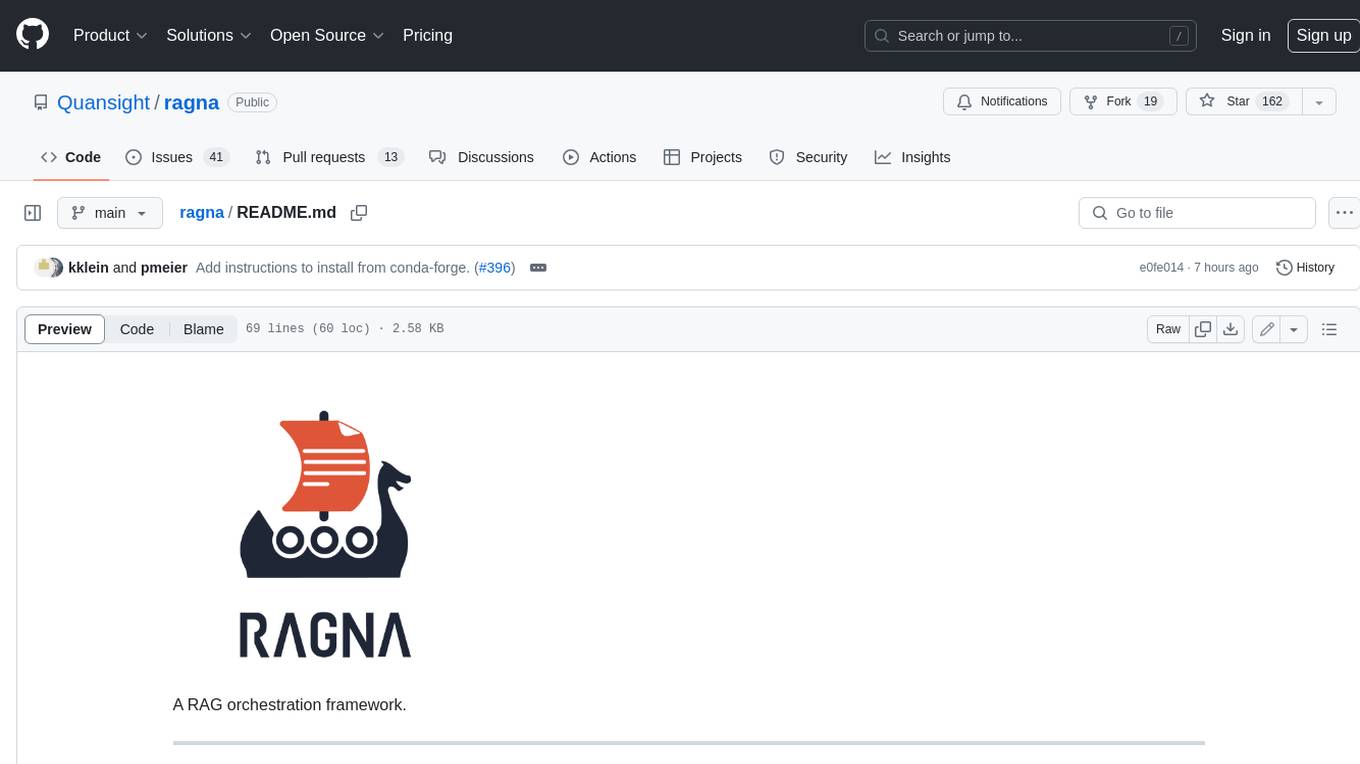
ragna
Ragna is a RAG orchestration framework designed for managing workflows and orchestrating tasks. It provides a comprehensive set of features for users to streamline their processes and automate repetitive tasks. With Ragna, users can easily create, schedule, and monitor workflows, making it an ideal tool for teams and individuals looking to improve their productivity and efficiency. The framework offers extensive documentation, community support, and a user-friendly interface, making it accessible to users of all skill levels. Whether you are a developer, data scientist, or project manager, Ragna can help you simplify your workflow management and boost your overall performance.
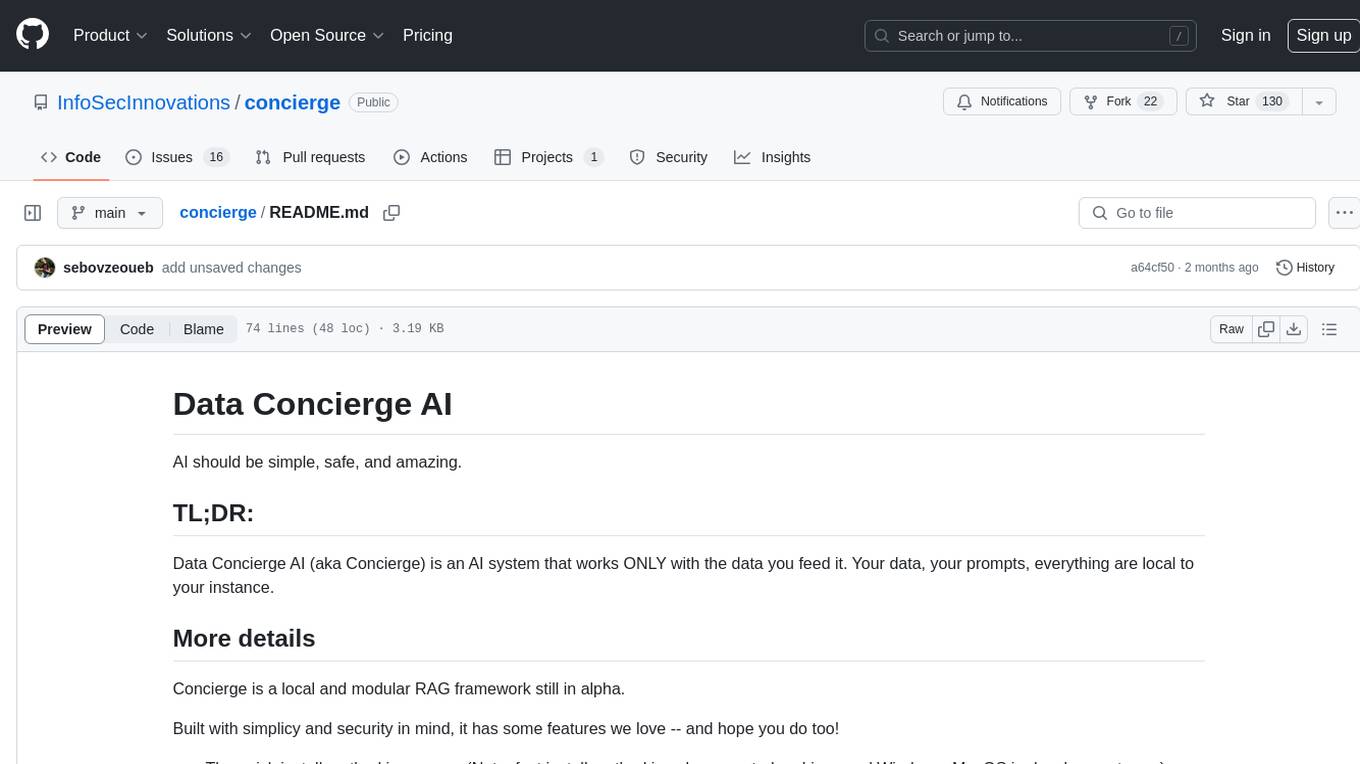
concierge
Concierge is a versatile automation tool designed to streamline repetitive tasks and workflows. It provides a user-friendly interface for creating custom automation scripts without the need for extensive coding knowledge. With Concierge, users can automate various tasks across different platforms and applications, increasing efficiency and productivity. The tool offers a wide range of pre-built automation templates and allows users to customize and schedule their automation processes. Concierge is suitable for individuals and businesses looking to automate routine tasks and improve overall workflow efficiency.
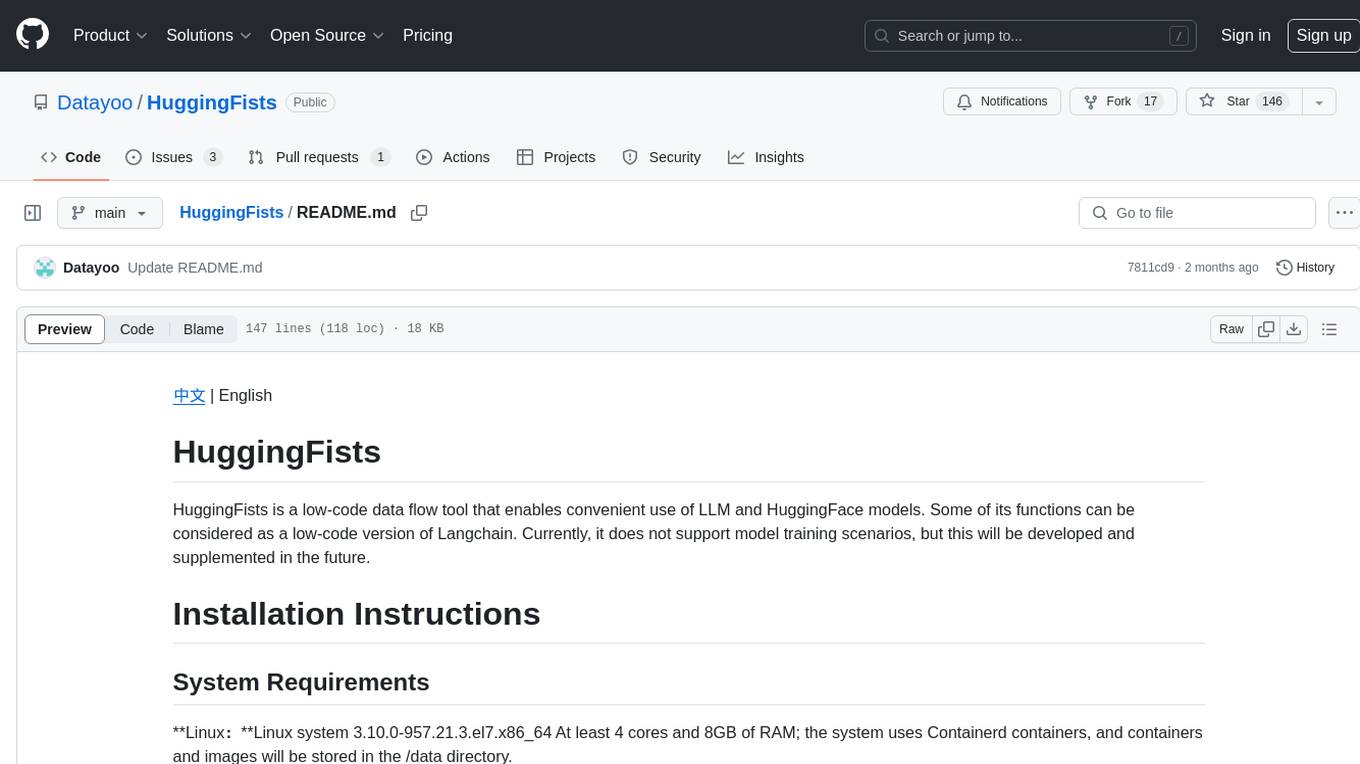
HuggingFists
HuggingFists is a low-code data flow tool that enables convenient use of LLM and HuggingFace models. It provides functionalities similar to Langchain, allowing users to design, debug, and manage data processing workflows, create and schedule workflow jobs, manage resources environment, and handle various data artifact resources. The tool also offers account management for users, allowing centralized management of data source accounts and API accounts. Users can access Hugging Face models through the Inference API or locally deployed models, as well as datasets on Hugging Face. HuggingFists supports breakpoint debugging, branch selection, function calls, workflow variables, and more to assist users in developing complex data processing workflows.

cognita
Cognita is an open-source framework to organize your RAG codebase along with a frontend to play around with different RAG customizations. It provides a simple way to organize your codebase so that it becomes easy to test it locally while also being able to deploy it in a production ready environment. The key issues that arise while productionizing RAG system from a Jupyter Notebook are: 1. **Chunking and Embedding Job** : The chunking and embedding code usually needs to be abstracted out and deployed as a job. Sometimes the job will need to run on a schedule or be trigerred via an event to keep the data updated. 2. **Query Service** : The code that generates the answer from the query needs to be wrapped up in a api server like FastAPI and should be deployed as a service. This service should be able to handle multiple queries at the same time and also autoscale with higher traffic. 3. **LLM / Embedding Model Deployment** : Often times, if we are using open-source models, we load the model in the Jupyter notebook. This will need to be hosted as a separate service in production and model will need to be called as an API. 4. **Vector DB deployment** : Most testing happens on vector DBs in memory or on disk. However, in production, the DBs need to be deployed in a more scalable and reliable way. Cognita makes it really easy to customize and experiment everything about a RAG system and still be able to deploy it in a good way. It also ships with a UI that makes it easier to try out different RAG configurations and see the results in real time. You can use it locally or with/without using any Truefoundry components. However, using Truefoundry components makes it easier to test different models and deploy the system in a scalable way. Cognita allows you to host multiple RAG systems using one app. ### Advantages of using Cognita are: 1. A central reusable repository of parsers, loaders, embedders and retrievers. 2. Ability for non-technical users to play with UI - Upload documents and perform QnA using modules built by the development team. 3. Fully API driven - which allows integration with other systems. > If you use Cognita with Truefoundry AI Gateway, you can get logging, metrics and feedback mechanism for your user queries. ### Features: 1. Support for multiple document retrievers that use `Similarity Search`, `Query Decompostion`, `Document Reranking`, etc 2. Support for SOTA OpenSource embeddings and reranking from `mixedbread-ai` 3. Support for using LLMs using `Ollama` 4. Support for incremental indexing that ingests entire documents in batches (reduces compute burden), keeps track of already indexed documents and prevents re-indexing of those docs.
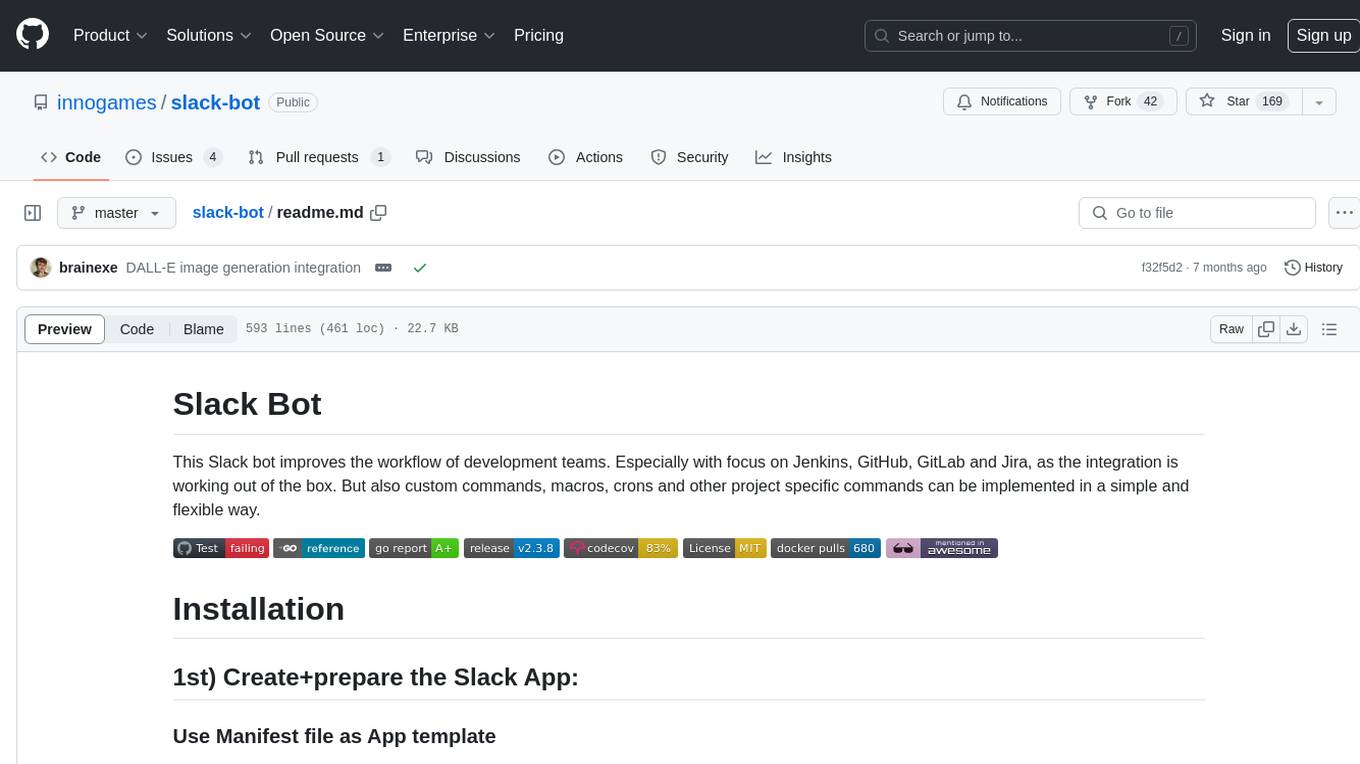
slack-bot
The Slack Bot is a tool designed to enhance the workflow of development teams by integrating with Jenkins, GitHub, GitLab, and Jira. It allows for custom commands, macros, crons, and project-specific commands to be implemented easily. Users can interact with the bot through Slack messages, execute commands, and monitor job progress. The bot supports features like starting and monitoring Jenkins jobs, tracking pull requests, querying Jira information, creating buttons for interactions, generating images with DALL-E, playing quiz games, checking weather, defining custom commands, and more. Configuration is managed via YAML files, allowing users to set up credentials for external services, define custom commands, schedule cron jobs, and configure VCS systems like Bitbucket for automated branch lookup in Jenkins triggers.

OpenDAN-Personal-AI-OS
OpenDAN is an open source Personal AI OS that consolidates various AI modules for personal use. It empowers users to create powerful AI agents like assistants, tutors, and companions. The OS allows agents to collaborate, integrate with services, and control smart devices. OpenDAN offers features like rapid installation, AI agent customization, connectivity via Telegram/Email, building a local knowledge base, distributed AI computing, and more. It aims to simplify life by putting AI in users' hands. The project is in early stages with ongoing development and future plans for user and kernel mode separation, home IoT device control, and an official OpenDAN SDK release.

telemetry-airflow
This repository codifies the Airflow cluster that is deployed at workflow.telemetry.mozilla.org (behind SSO) and commonly referred to as "WTMO" or simply "Airflow". Some links relevant to users and developers of WTMO: * The `dags` directory in this repository contains some custom DAG definitions * Many of the DAGs registered with WTMO don't live in this repository, but are instead generated from ETL task definitions in bigquery-etl * The Data SRE team maintains a WTMO Developer Guide (behind SSO)

mage-ai
Mage is an open-source data pipeline tool for transforming and integrating data. It offers an easy developer experience, engineering best practices built-in, and data as a first-class citizen. Mage makes it easy to build, preview, and launch data pipelines, and provides observability and scaling capabilities. It supports data integrations, streaming pipelines, and dbt integration.

fluid
Fluid is an open source Kubernetes-native Distributed Dataset Orchestrator and Accelerator for data-intensive applications, such as big data and AI applications. It implements dataset abstraction, scalable cache runtime, automated data operations, elasticity and scheduling, and is runtime platform agnostic. Key concepts include Dataset and Runtime. Prerequisites include Kubernetes version > 1.16, Golang 1.18+, and Helm 3. The tool offers features like accelerating remote file accessing, machine learning, accelerating PVC, preloading dataset, and on-the-fly dataset cache scaling. Contributions are welcomed, and the project is under the Apache 2.0 license with a vendor-neutral approach.
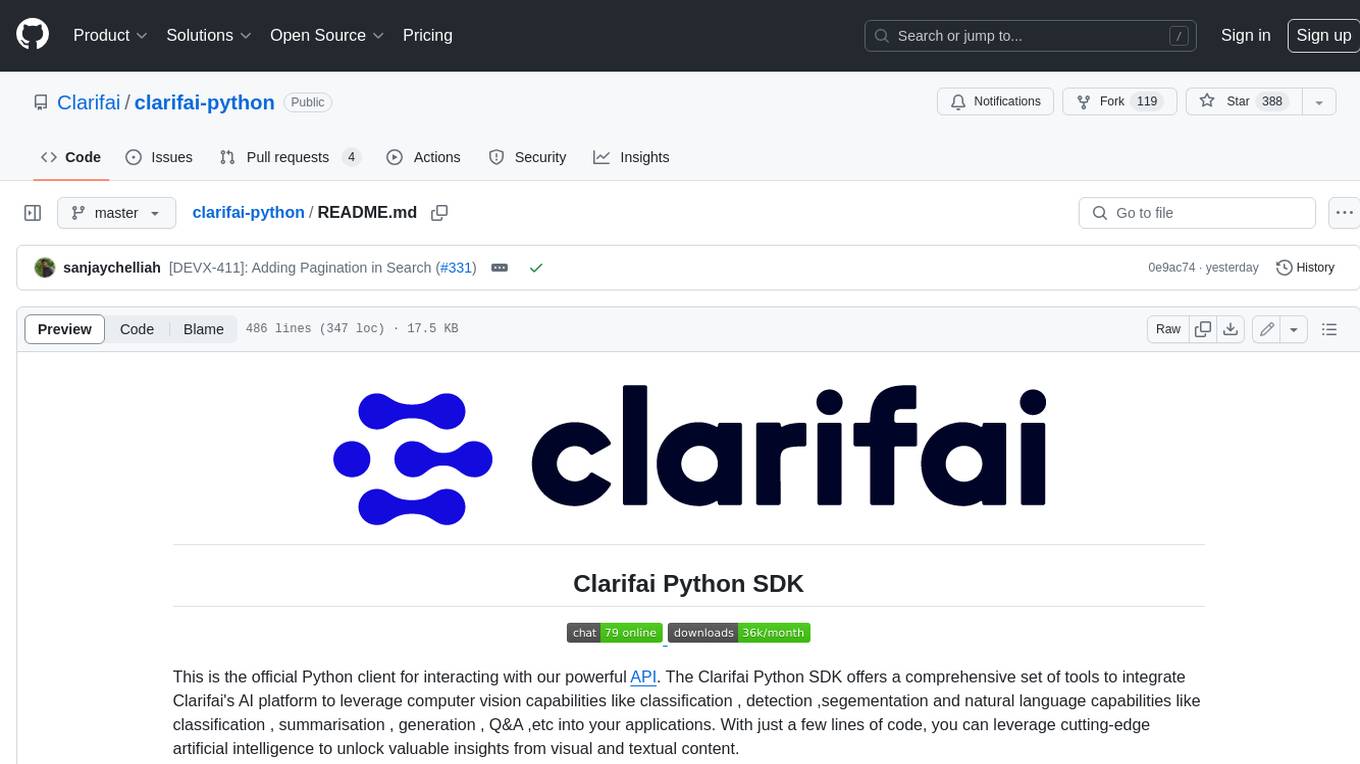
clarifai-python
The Clarifai Python SDK offers a comprehensive set of tools to integrate Clarifai's AI platform to leverage computer vision capabilities like classification , detection ,segementation and natural language capabilities like classification , summarisation , generation , Q&A ,etc into your applications. With just a few lines of code, you can leverage cutting-edge artificial intelligence to unlock valuable insights from visual and textual content.
20 - OpenAI Gpts
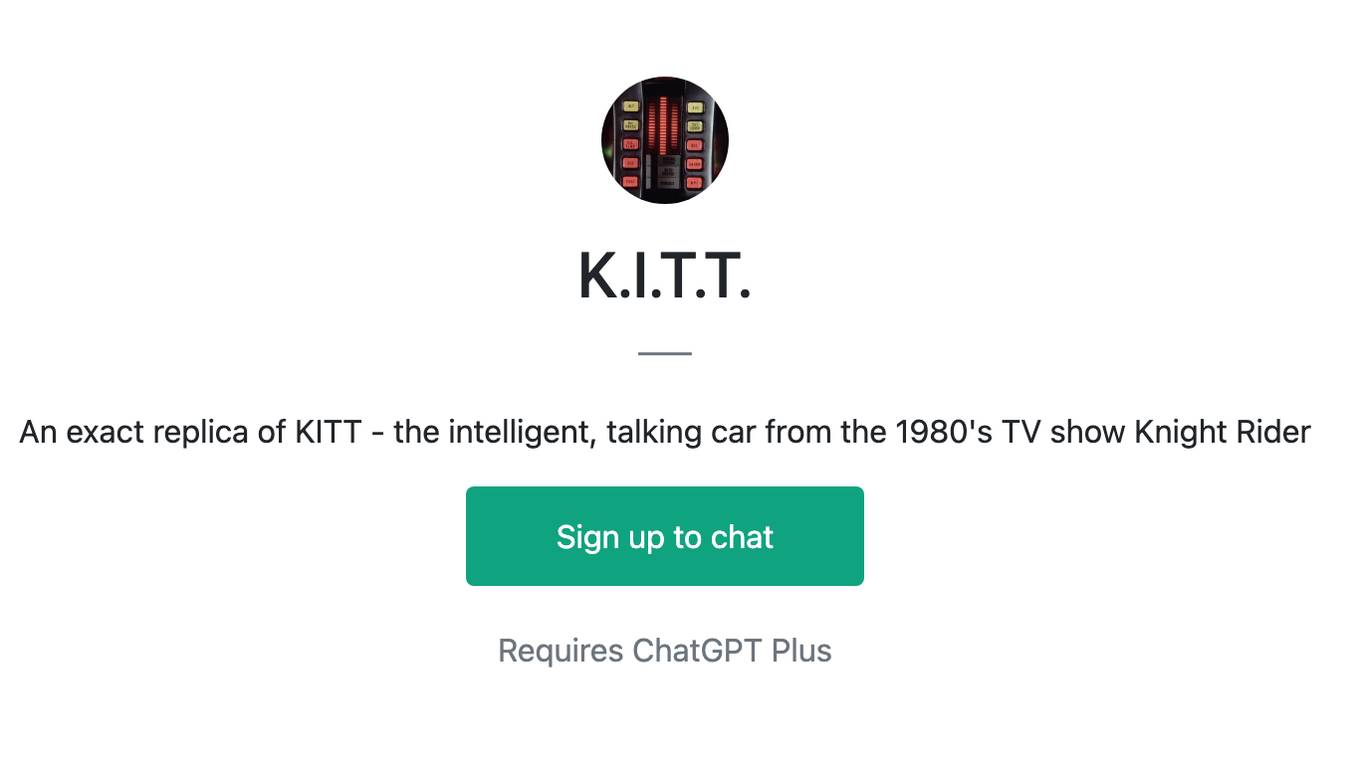
K.I.T.T.
An exact replica of KITT - the intelligent, talking car from the 1980's TV show Knight Rider

📅 Schedule Companion | ゆみちゃん
Paste messages! Personal assistant for managing/planning schedules and tasks with Google Calendar
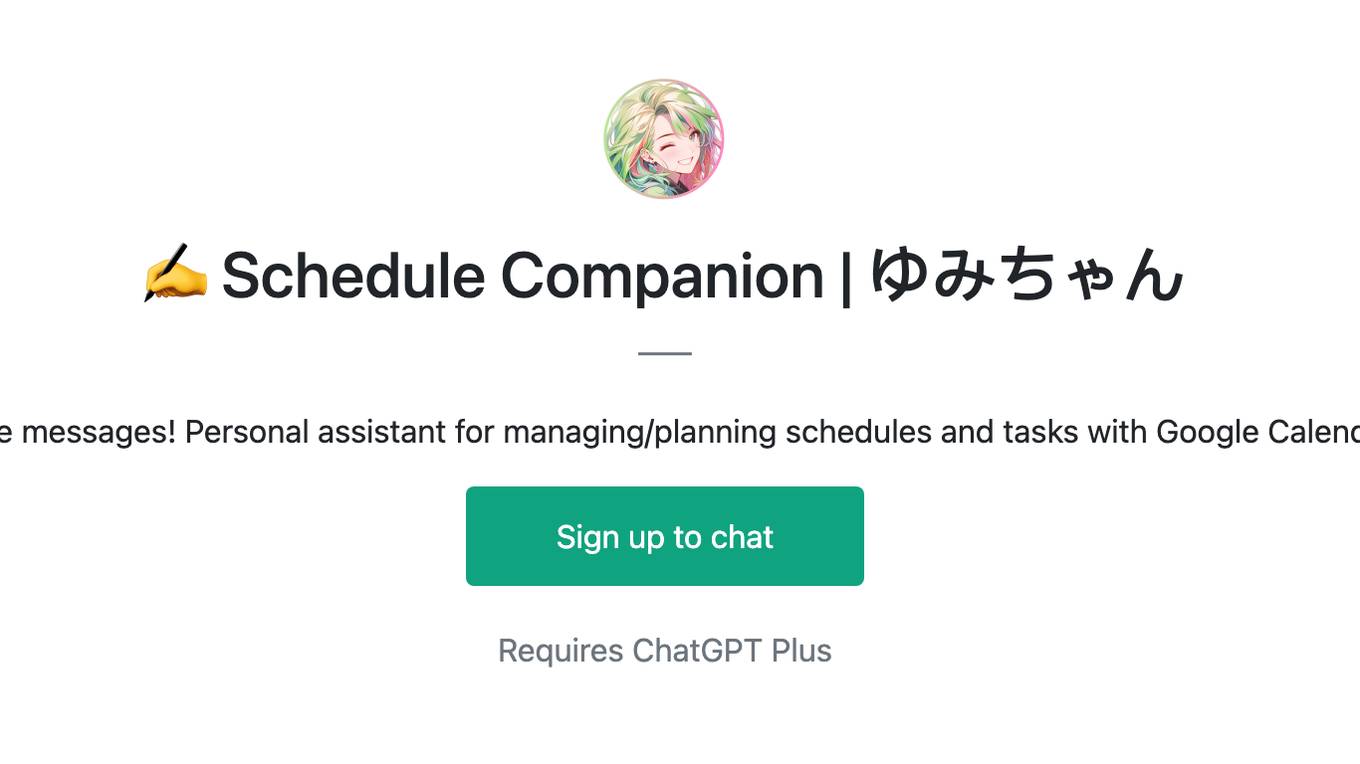
✍ Schedule Companion | ゆみちゃん
Paste messages! Personal assistant for managing/planning schedules and tasks with Google Calendar
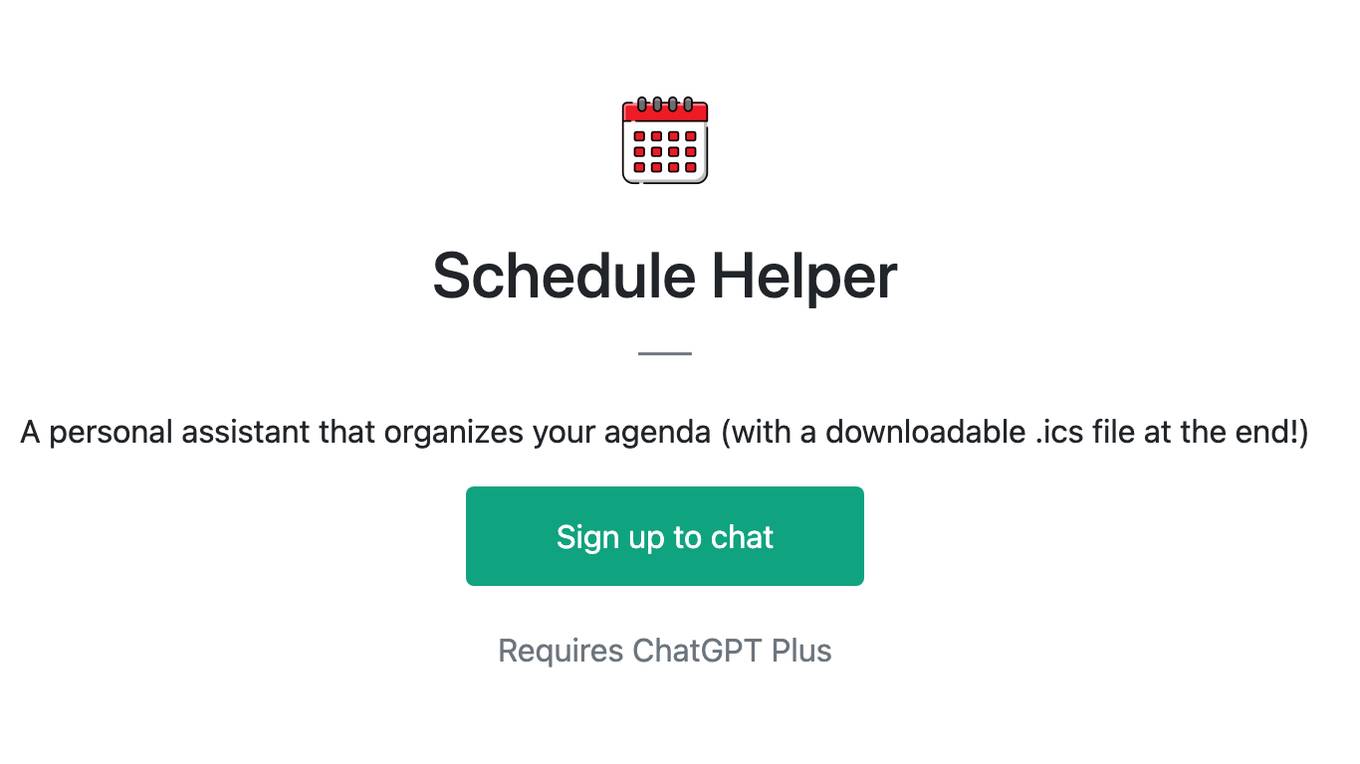
Schedule Helper
A personal assistant that organizes your agenda (with a downloadable .ics file at the end!)
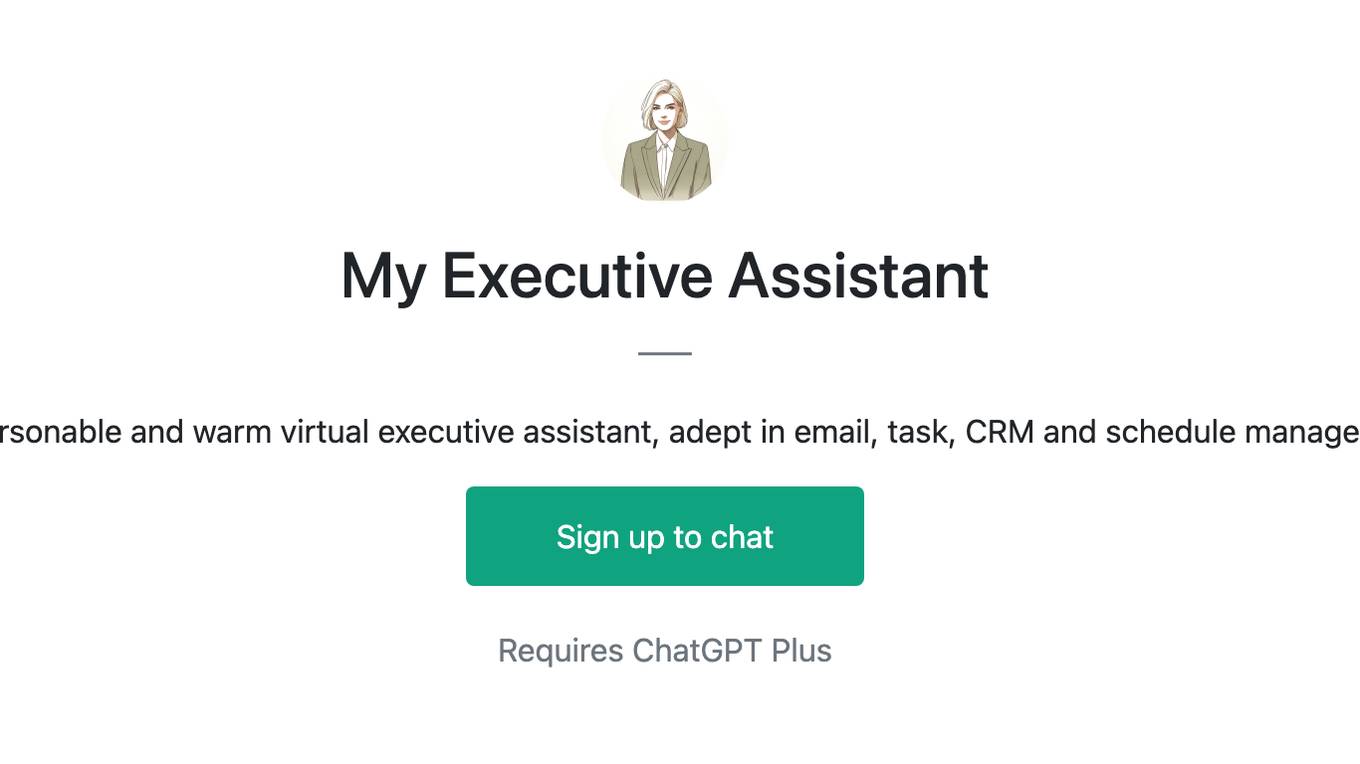
My Executive Assistant
Your personable and warm virtual executive assistant, adept in email, task, CRM and schedule management.
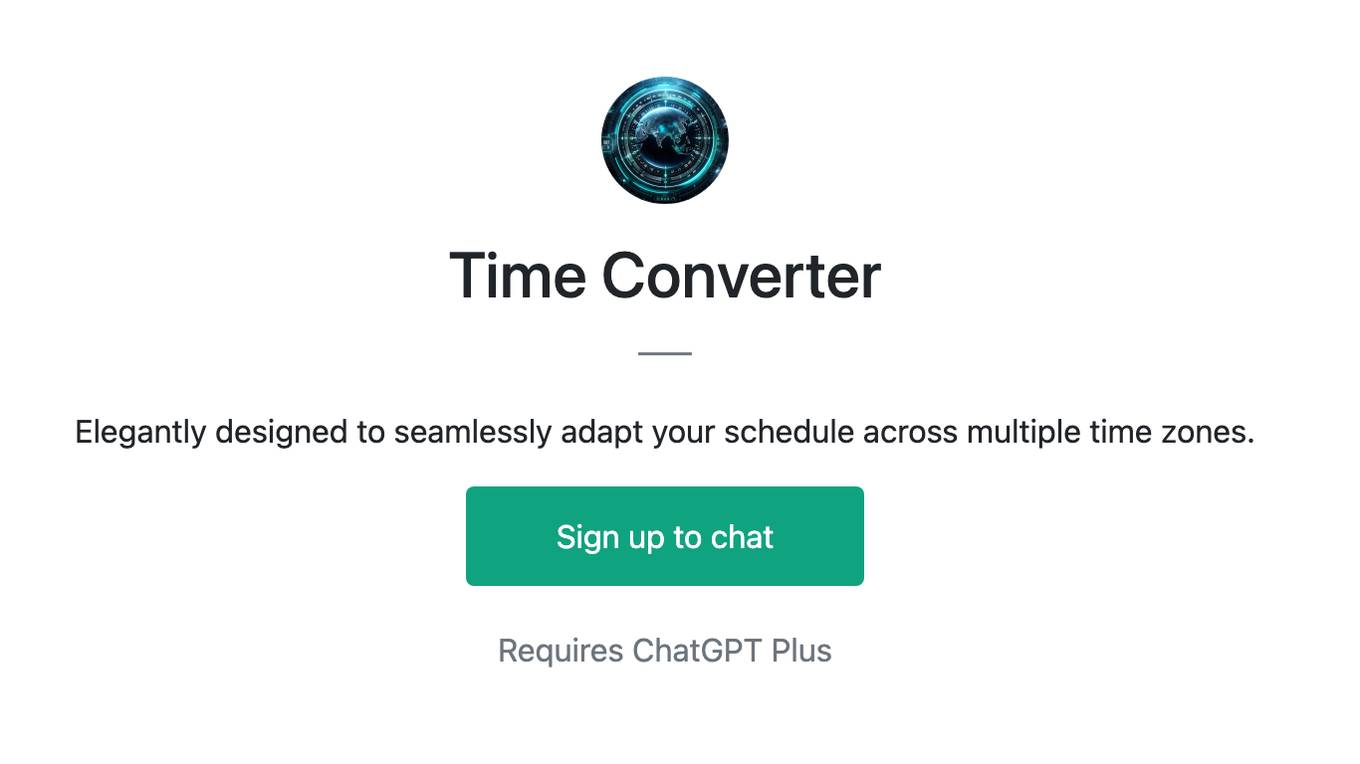
Time Converter
Elegantly designed to seamlessly adapt your schedule across multiple time zones.
Calendar event from image
Upload an image of an event poster, download the event as a .ICS file
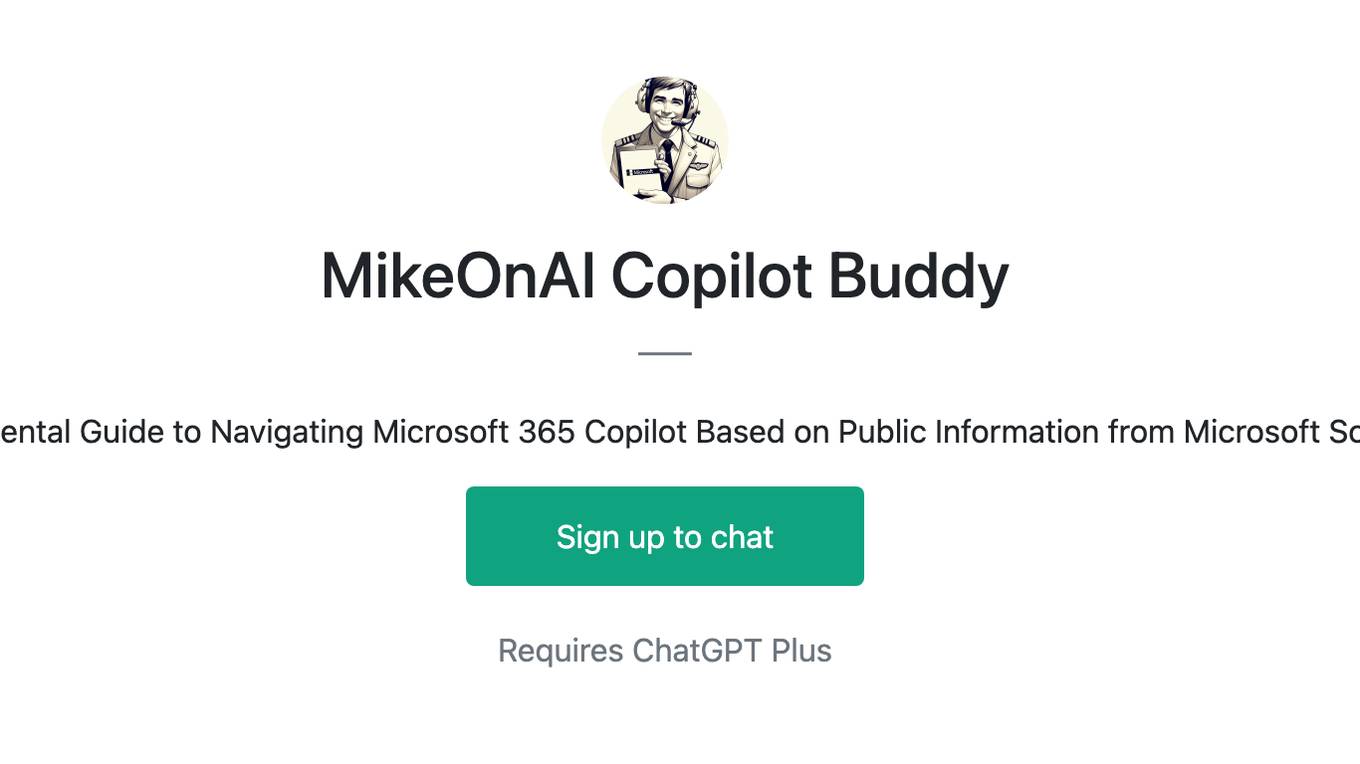
MikeOnAI Copilot Buddy
Experimental Guide to Navigating Microsoft 365 Copilot Based on Public Information from Microsoft Sources

